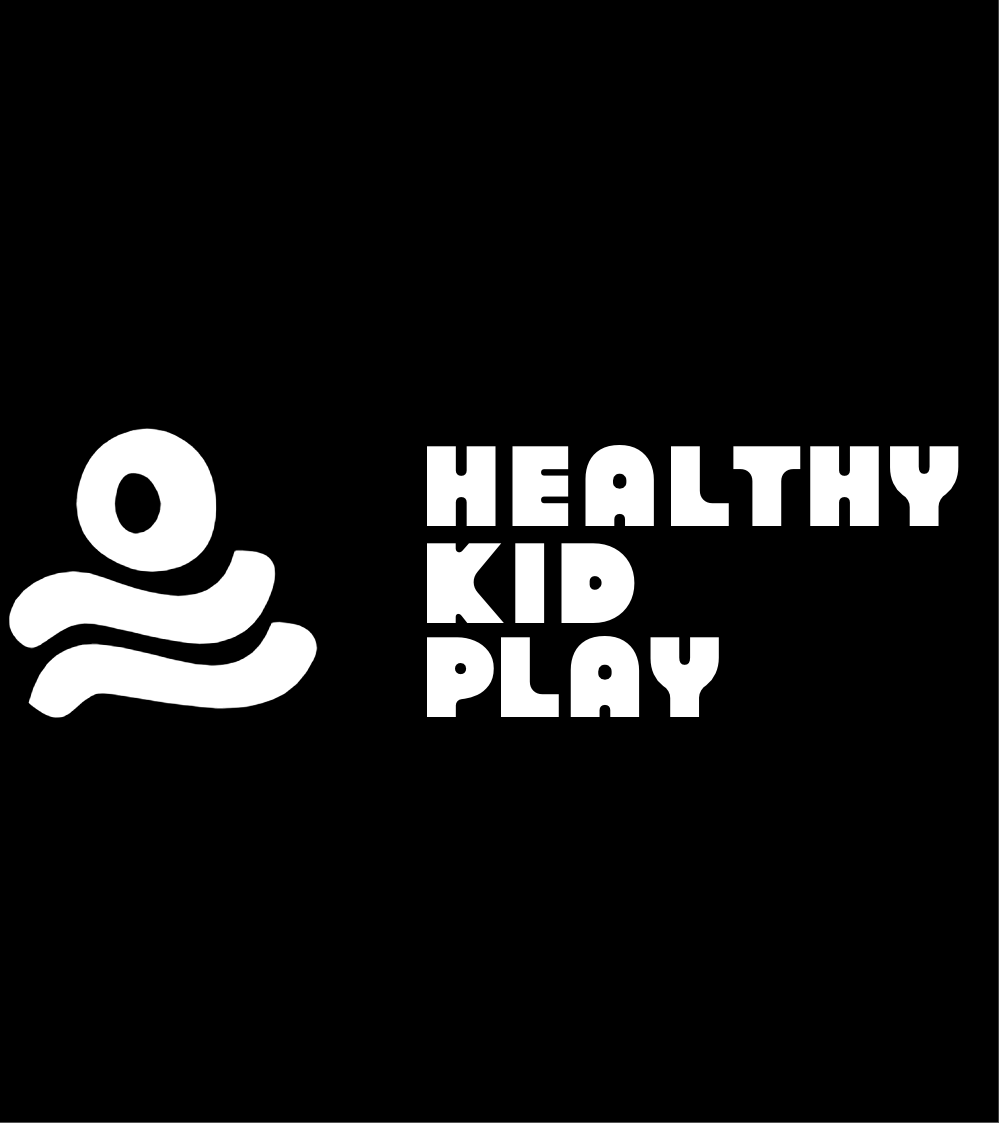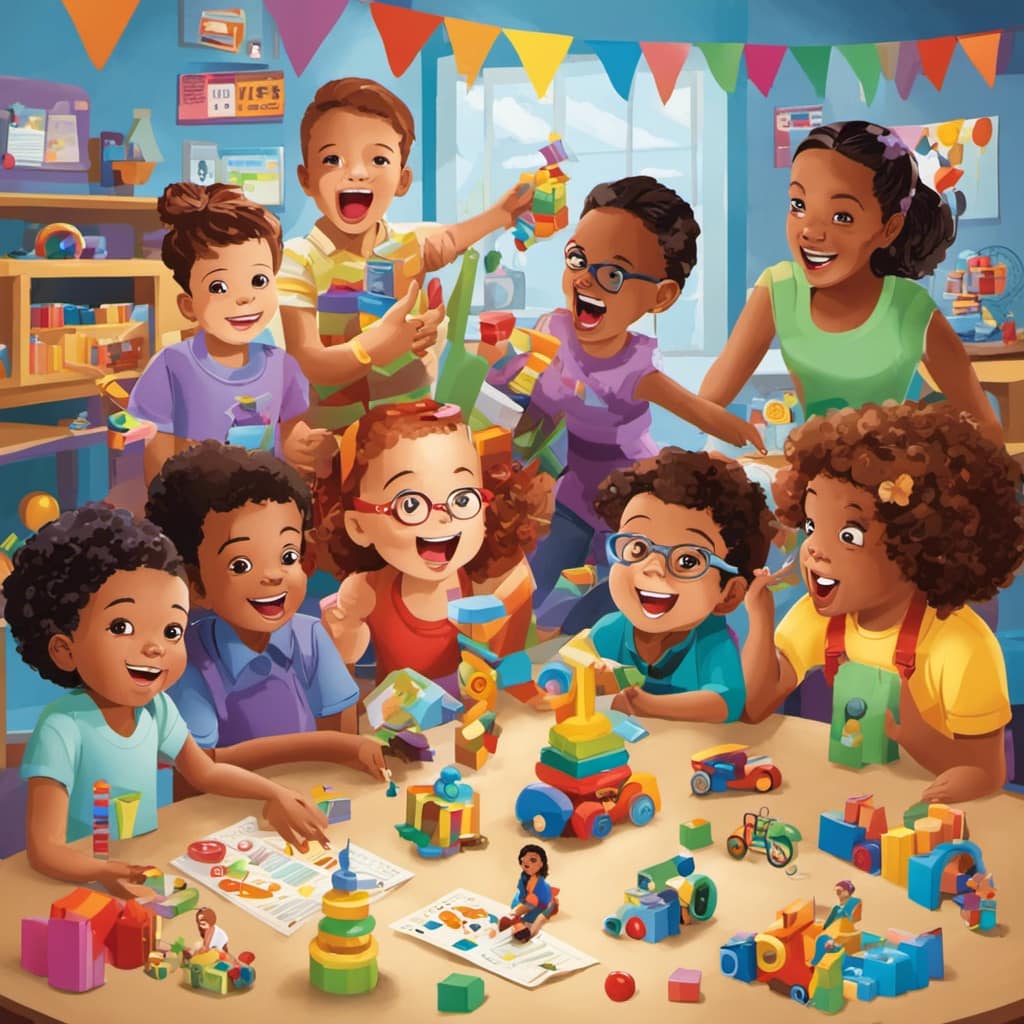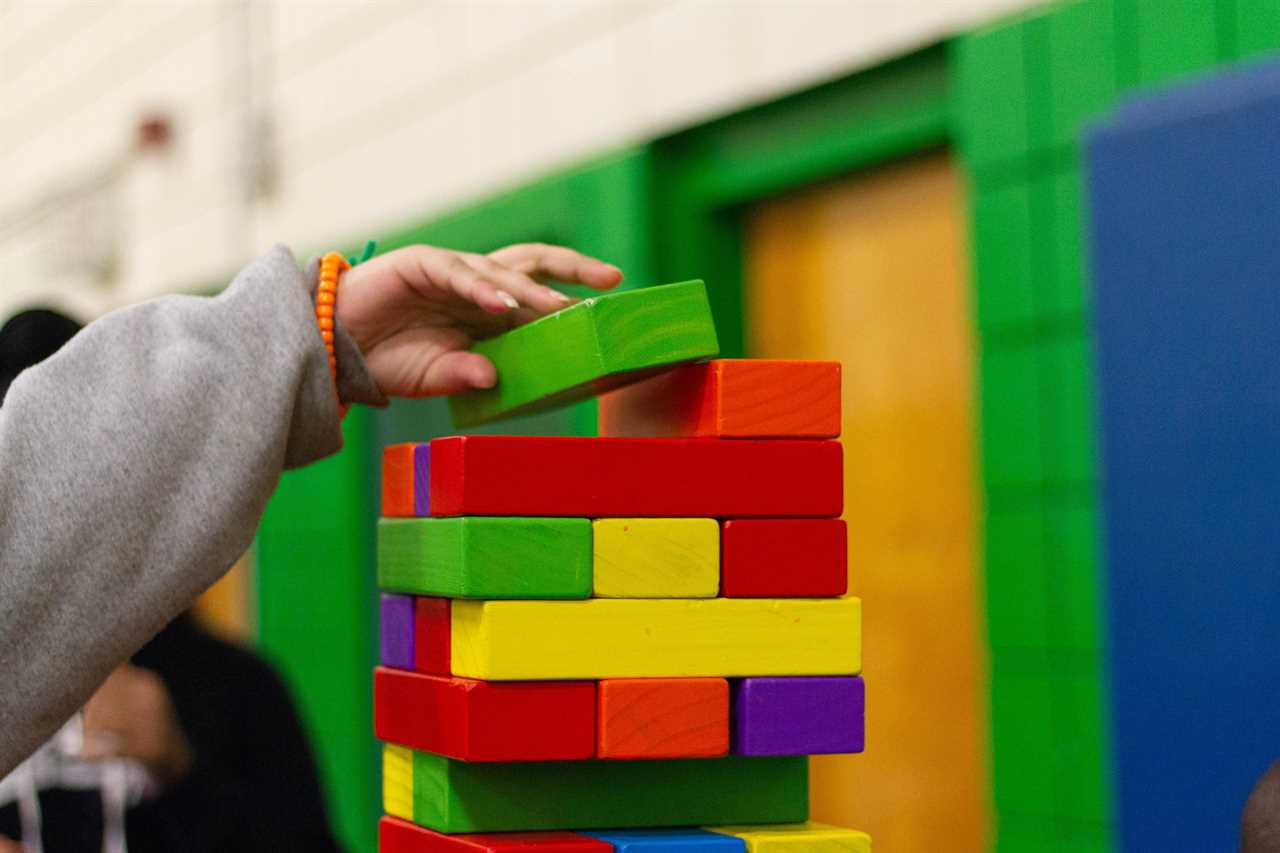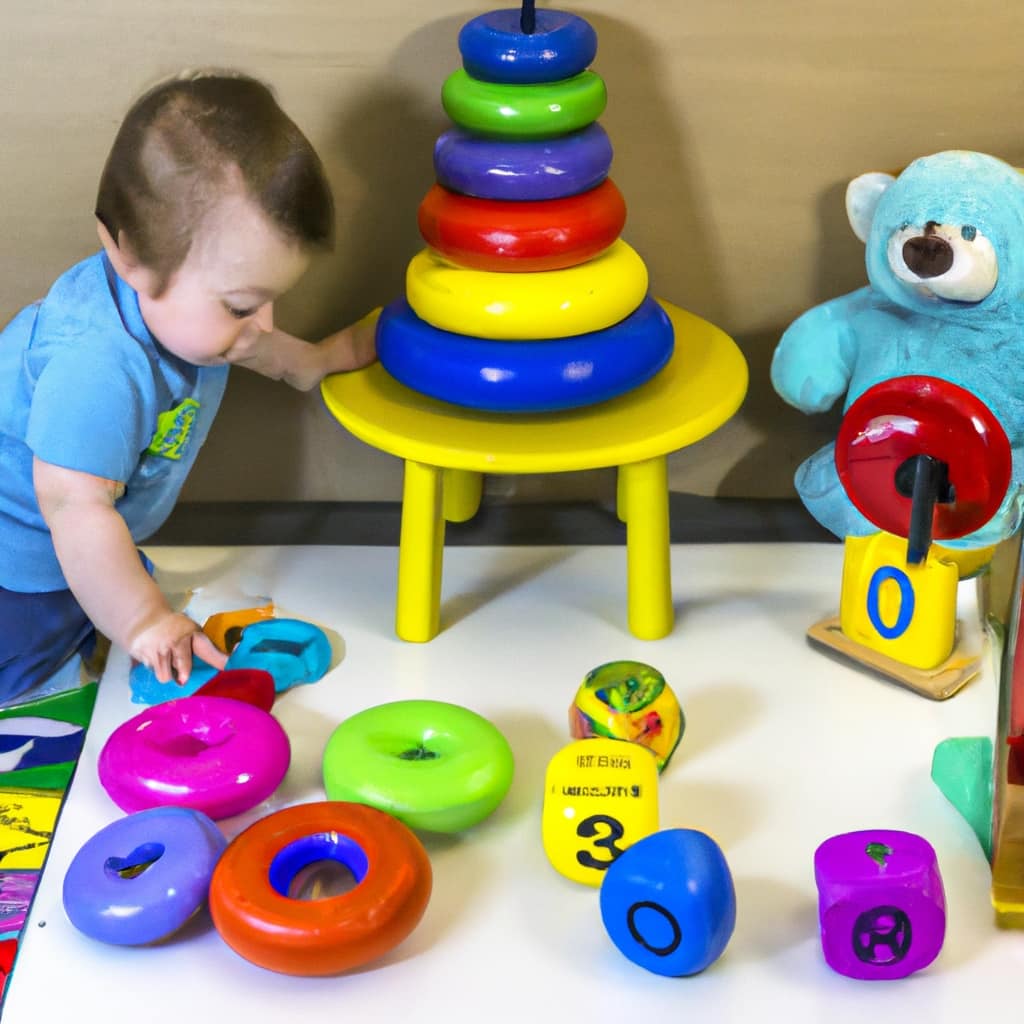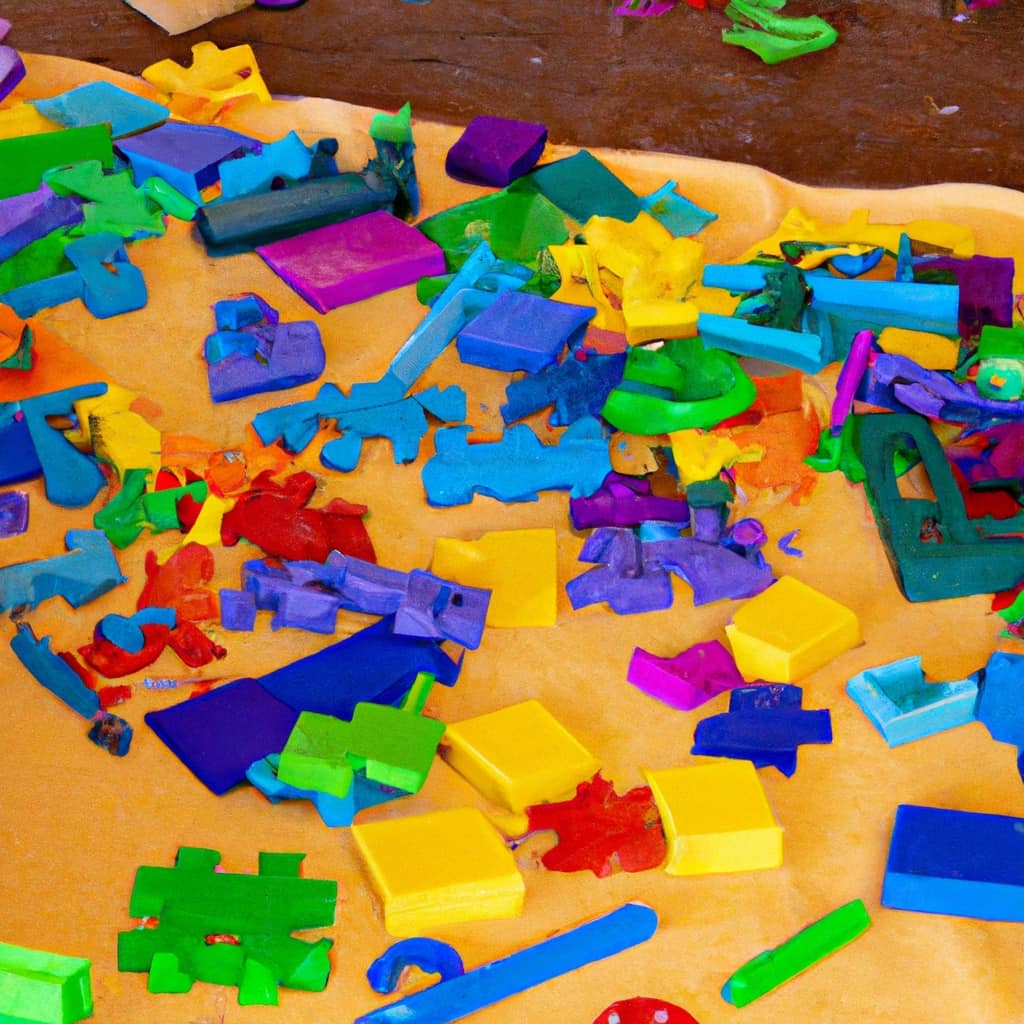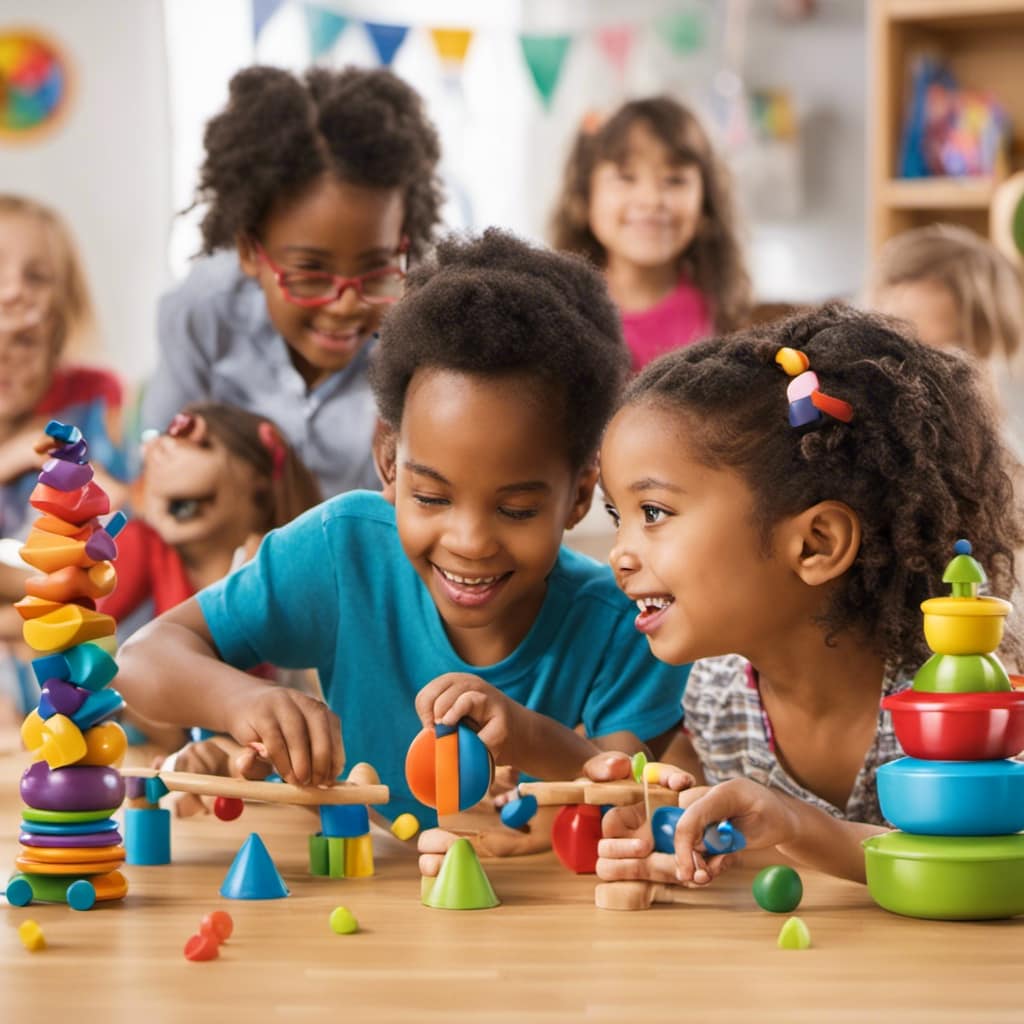Montessori Toys
Unlocking Child Development: Benefits of Montessori Toys

Are you on the hunt for toys that do more than just amuse, but also support your child’s growth? Search no more! Montessori toys are revolutionizing the game.
We have discovered that these toys provide numerous benefits for children, such as cognitive development, enhanced motor skills, boosted creativity and imagination, independent learning, problem-solving abilities, and social and emotional growth.
Imagine the joy on your child’s face as they unlock their full potential through play. Let’s dive into the world of Montessori toys and unlock your child’s development together.
Key Takeaways
- Montessori toys enhance cognitive and motor skills.
- Montessori toys promote creativity and imagination.
- Montessori toys improve problem-solving and critical thinking abilities.
- Montessori toys boost confidence and self-esteem.
Cognitive Development
In our exploration of cognitive development, we’ll delve into the ways in which Montessori toys can promote learning and problem-solving skills.

Language acquisition plays a crucial role in cognitive development, and Montessori toys are designed to enhance this process. By engaging with these toys, children are exposed to various words, sounds, and concepts, which helps them develop their language skills.
The interactive nature of Montessori toys encourages children to think critically and solve problems. These toys often require children to use their imagination, creativity, and logical thinking to complete tasks or solve puzzles. This promotes the development of their critical thinking skills, enabling them to analyze, evaluate, and make informed decisions.
Montessori toys provide a stimulating environment that fosters cognitive growth, language acquisition, and the development of critical thinking skills in children.
Motor Skills Enhancement
Moving on to motor skills enhancement, our exploration of Montessori toys continues to highlight their ability to promote physical development in children. These toys are designed to engage children in activities that improve both their fine motor skills, which involve precise movements of the hands and fingers, and their gross motor skills, which involve larger movements of the whole body. Montessori toys provide opportunities for children to practice gripping, stacking, and manipulating objects, thereby strengthening their hand-eye coordination and dexterity. Additionally, toys that encourage movement, such as balance boards and climbing structures, help children develop their core strength, balance, and coordination. By engaging in these activities, children not only enhance their physical abilities but also gain confidence in their own capabilities, setting a strong foundation for lifelong physical development.

| Fine Motor Skills | Gross Motor Skills |
|---|---|
| Gripping small objects | Balancing |
| Manipulating toys | Climbing |
| Hand-eye coordination | Coordination |
| Dexterity | Core strength |
Creativity and Imagination Boost
One key benefit of Montessori toys is the boost they provide to children’s creativity and imagination. Montessori toys are designed to encourage open-ended play and exploration, which stimulates the child’s imagination and allows them to think outside the box.
These toys provide the opportunity for children to create their own narratives, characters, and scenarios, allowing them to develop their storytelling skills and imagination. Additionally, Montessori toys often require concentration and problem-solving, which further enhances creativity.
By focusing on a task and finding innovative solutions, children learn to think creatively and develop new ideas. This not only improves their concentration but also fosters innovation, as they learn to approach challenges from different perspectives.
As we transition to the next section on independent learning and problem-solving, we’ll explore how Montessori toys support children in developing these vital skills.
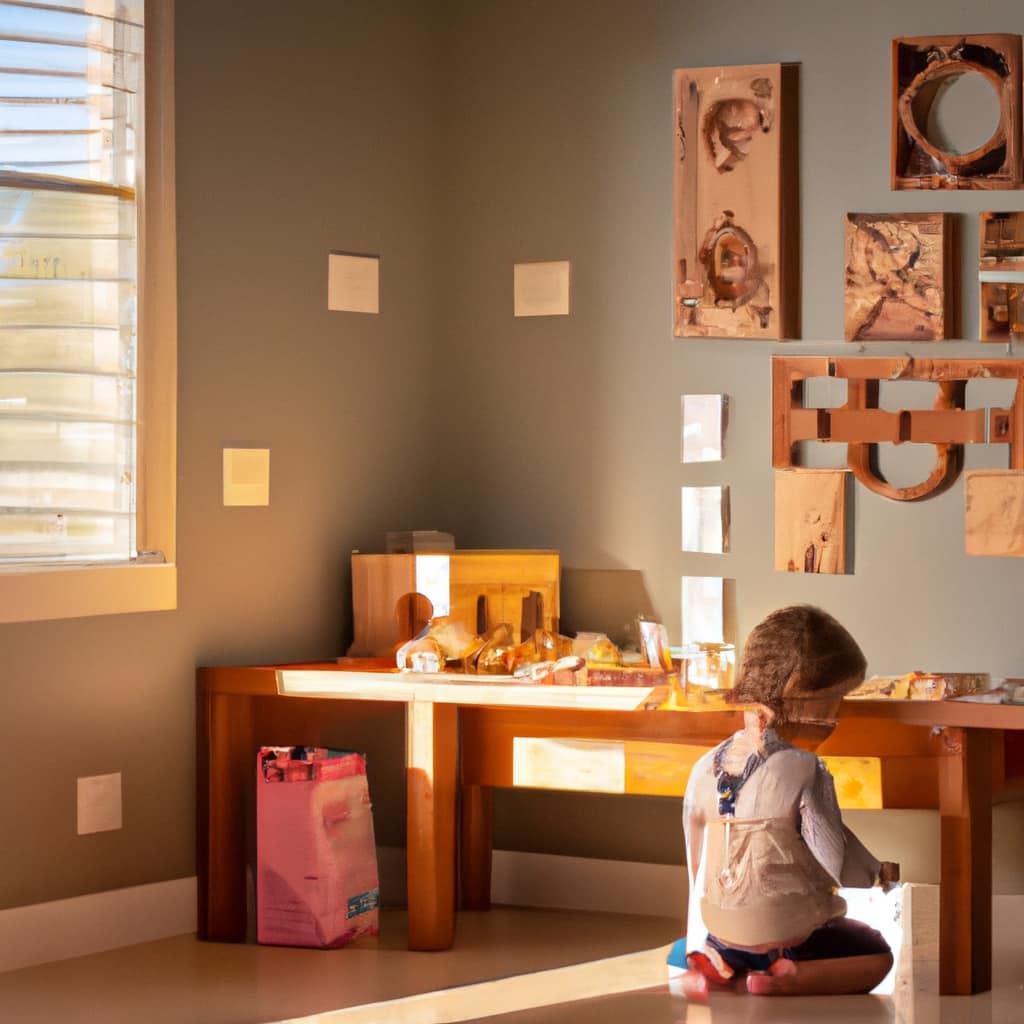
Independent Learning and Problem-Solving
Montessori toys facilitate our development of independent learning and problem-solving skills. These toys are designed to encourage critical thinking and self-directed learning in children. Here are four ways Montessori toys support independent learning and problem-solving:
-
Open-ended play: Montessori toys don’t have a predetermined outcome, allowing children to explore and experiment freely. This fosters creativity and problem-solving as they figure out different ways to play and use the toys.
-
Hands-on learning: Montessori toys are designed to be manipulative, encouraging children to use their hands and senses. This hands-on approach enhances their problem-solving skills by allowing them to directly interact with the materials and learn through trial and error.
-
Self-correction: Montessori toys often come with built-in mechanisms that provide immediate feedback to children. This helps them identify and correct their mistakes independently, promoting self-directed learning.
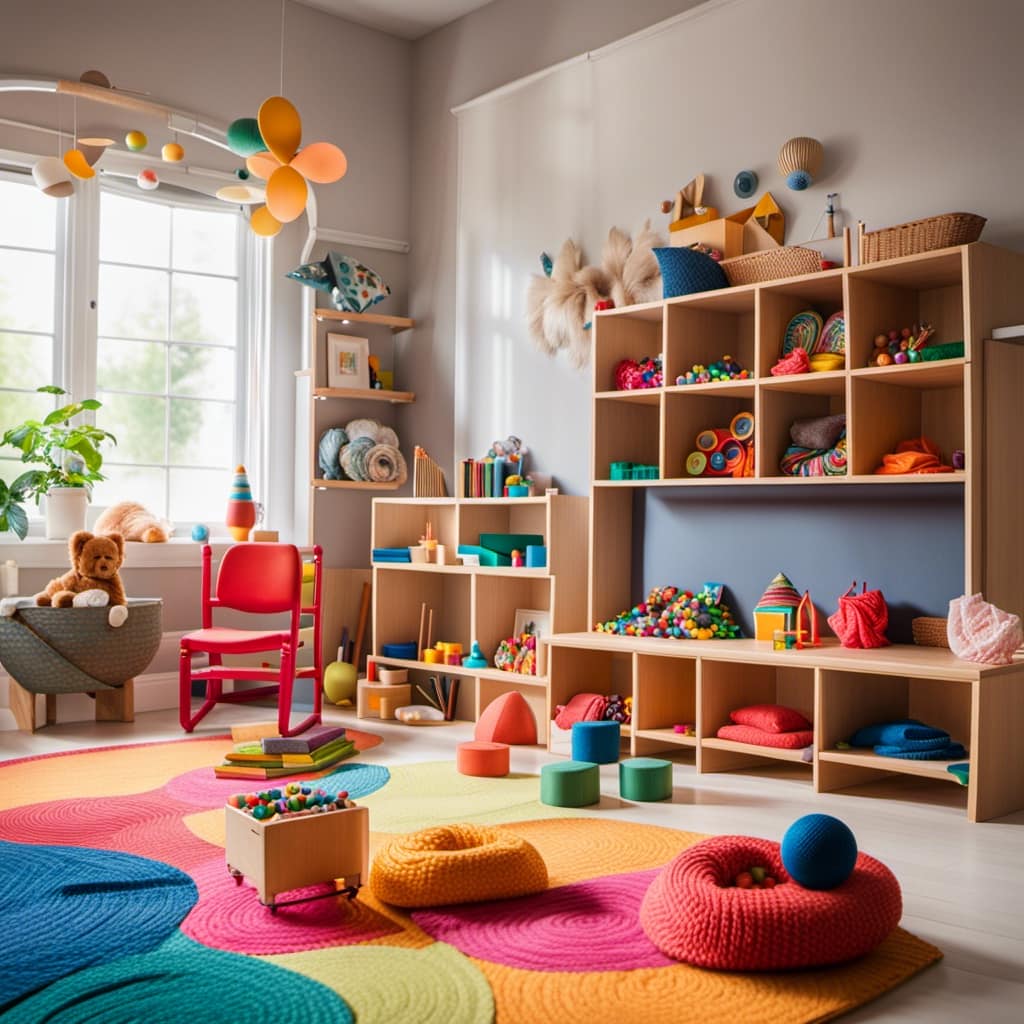
-
Natural consequences: Montessori toys allow children to experience natural consequences of their actions. This helps them develop problem-solving skills by understanding cause and effect relationships.
By honing these skills through Montessori toys, children are better prepared to navigate challenges and solve problems in their everyday lives.
Now, let’s delve into the next section about the ‘social and emotional growth’.
Social and Emotional Growth
The article explores the benefits of Montessori toys in unlocking child development, focusing now on the social and emotional growth. Montessori toys play a crucial role in fostering self-awareness and empathy development in children. By engaging in activities that encourage self-reflection and understanding of emotions, children develop a strong sense of self-awareness. This allows them to recognize their own feelings and needs, as well as understand the emotions of others. Through play and interaction with Montessori toys, children also learn to empathize with others. They develop the ability to put themselves in someone else’s shoes, understand their emotions, and respond with kindness and compassion. This helps children build strong social connections and navigate relationships effectively, laying the foundation for healthy social and emotional development.

| Montessori Toys for Social and Emotional Growth | ||
|---|---|---|
| Self-Awareness | Empathy Development | Building Connections |
| Encourages reflection | Helps understand others | Nurtures social skills |
| Promotes emotional intelligence | Cultivates compassion | Fosters healthy relationships |
Frequently Asked Questions
What Is the Recommended Age Range for Montessori Toys?
The recommended age range for Montessori toys varies depending on the specific toy, but generally, they are designed for children between the ages of 1 and 6. Using Montessori toys can provide numerous benefits for child development.
Can Montessori Toys Be Used by Children With Special Needs?
Inclusive play is important for all children, including those with special needs. Montessori toys, known for their adaptability in education, can be beneficial in promoting development and learning in children with diverse abilities.
Are Montessori Toys Suitable for Only Indoor Use?
Montessori toys are not limited to indoor use. They offer outdoor benefits as well. The Montessori toy materials are designed to encourage exploration and learning in various environments, promoting holistic child development.
Are There Any Safety Guidelines That Need to Be Followed While Using Montessori Toys?
When using Montessori toys, it is important to follow safety guidelines. Supervision measures should be in place to ensure the child’s well-being. Safety precautions like age-appropriate toys and avoiding small parts are crucial.
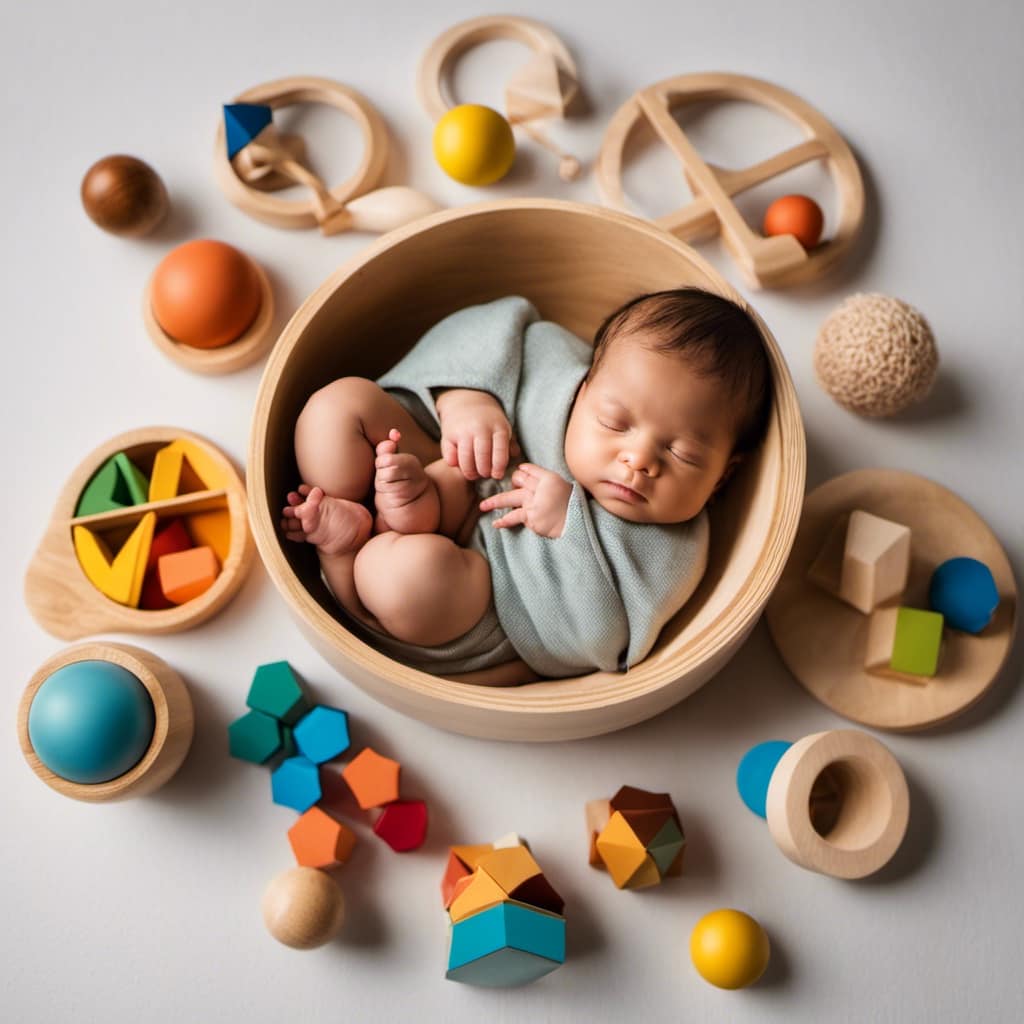
Can Montessori Toys Be Used as a Substitute for Traditional Educational Methods?
Montessori toys can enhance child development, but they should not be seen as a substitute for traditional educational methods. Research shows that a combination of both approaches is most effective in promoting learning and holistic development.
Conclusion
In conclusion, Montessori toys offer a wide range of benefits for child development.
Their cognitive development is enhanced through engaging and interactive play.
Motor skills are honed as children manipulate and explore these toys.
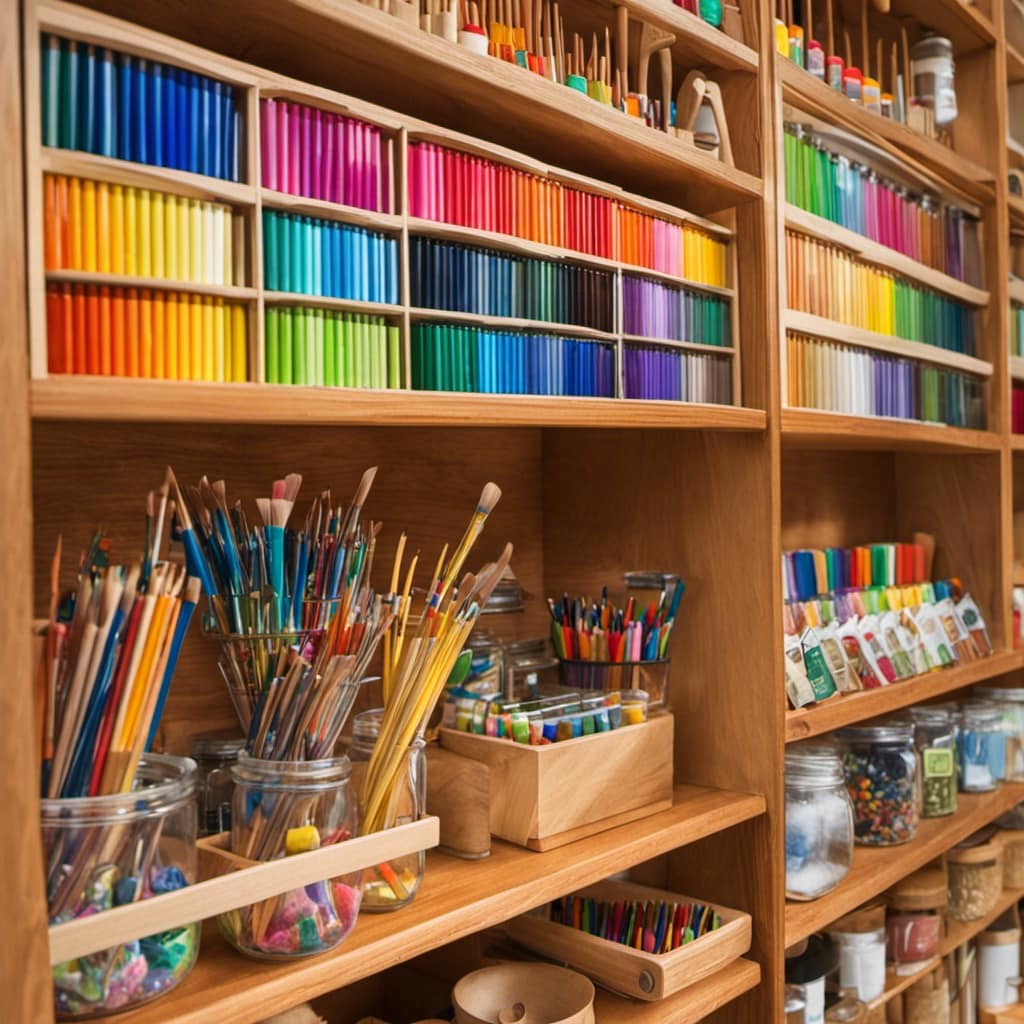
Creativity and imagination are sparked, allowing children to think outside the box.
Moreover, these toys promote independent learning and problem-solving skills.
Lastly, social and emotional growth is nurtured through collaborative play.
By providing a research-based approach to learning, Montessori toys truly unlock the potential of every child.

Montessori Toys
Top 5 Quality Producers of Learning Toys

We have diligently searched the market to present to you the top 5 premier manufacturers of educational toys. These companies are far from being ordinary; they are genuine masters in their domain.
Melissa & Doug, Hape, PlanToys, Learning Resources, and Manhattan Toy have all earned their spot on this prestigious list. With their innovative designs and commitment to educational play, they are dedicated to serving children and helping them reach their full potential.
Get ready to discover the finest learning toys out there!
Key Takeaways
- Melissa & Doug, Hape, PlanToys, Learning Resources, and Manhattan Toy are top quality producers of learning toys.
- Each brand offers unique features and benefits, such as promoting imaginative play and creativity, improving fine motor skills, encouraging problem-solving skills and cognitive development, and incorporating sustainable and eco-friendly materials.
- Learning Resources toys focus on hands-on learning and incorporate technology for a comprehensive learning approach.
- Manhattan Toy is committed to sustainable design, offers a wide range of activity centers, interactive puzzles, and soft plush toys, and has received recognition for their educational value and enhancing learning and development.
Melissa & Doug
We absolutely love Melissa & Doug for their exceptional quality and commitment to creating educational toys.

When it comes to learning toys, Melissa & Doug provides numerous benefits for children. One of the main advantages is that their toys promote imaginative play.
By offering a wide range of pretend play options, such as play kitchens, tool sets, and dress-up costumes, children are encouraged to use their creativity and develop their problem-solving skills.
Melissa & Doug toys also help improve fine motor skills through activities like stacking, sorting, and building. Furthermore, their toys are made from durable materials, ensuring they can withstand the wear and tear of active play.
All these features contribute to a well-rounded learning experience for children.

Now, let’s move on to the next top quality producer of learning toys, Hape.
Hape
Moving on to Hape, we were impressed by their commitment to producing high-quality learning toys. Hape learning toys offer a range of benefits for children’s development.
Firstly, these toys are designed to encourage imaginative play, which helps enhance creativity and problem-solving skills.
Secondly, Hape learning toys promote cognitive development by incorporating innovative features such as puzzles, stacking games, and shape sorters. These toys also focus on fine motor skills, with activities that involve grasping, twisting, and building.
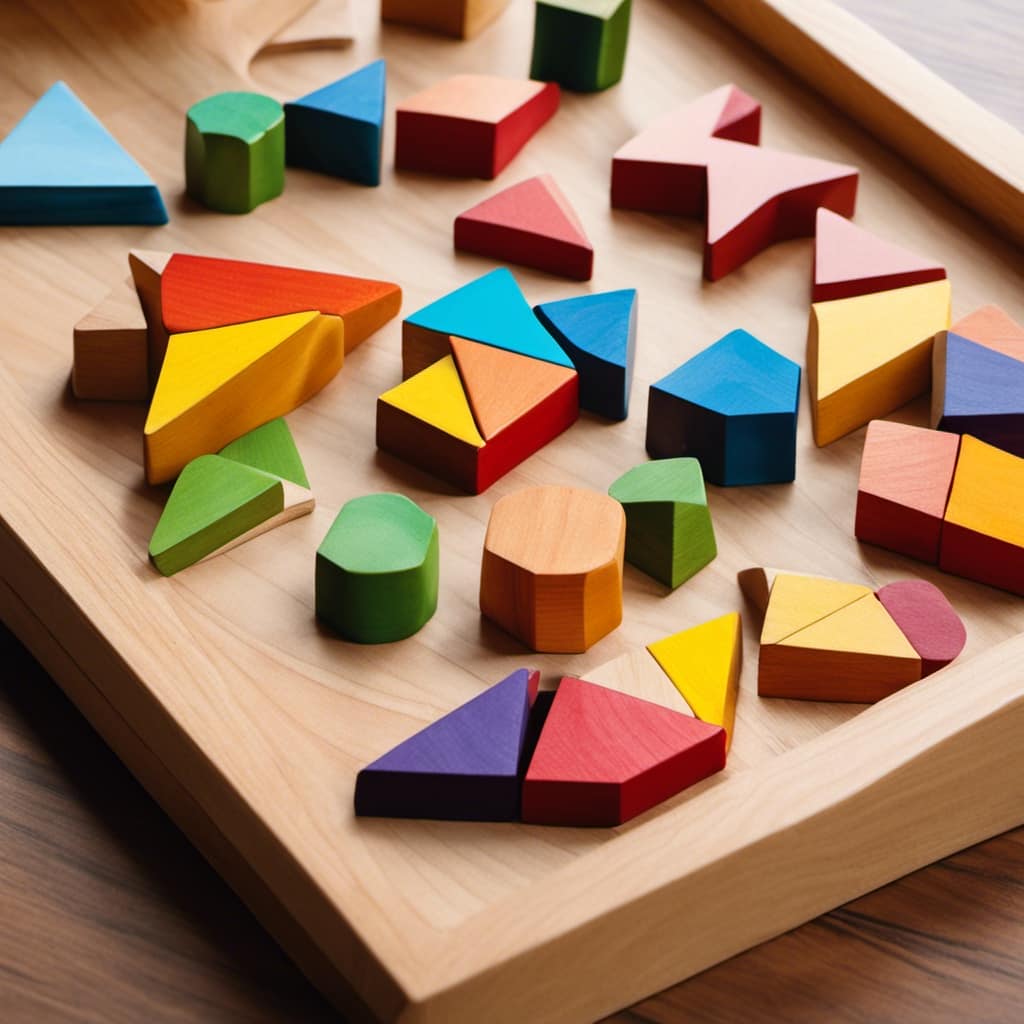
Additionally, Hape toys are made from eco-friendly materials, ensuring a safe play environment for children. The brand’s dedication to sustainability is evident in their use of non-toxic paints and finishes.
PlanToys
Continuing our exploration of top quality producers of learning toys, let’s now turn our attention to PlanToys.
PlanToys is a renowned brand known for their sustainable and eco-friendly toys. They’ve made a commitment to create toys that aren’t only safe for children, but also safe for the environment. PlanToys uses sustainable materials, such as rubberwood, and promotes responsible manufacturing practices.
In addition to their commitment to sustainability, PlanToys also stands out for their innovations in learning toy design. They understand that children learn best through play, and their toys are designed to encourage creativity, problem-solving, and critical thinking skills. From building blocks to puzzles, PlanToys offers a wide range of educational toys that are both engaging and educational.
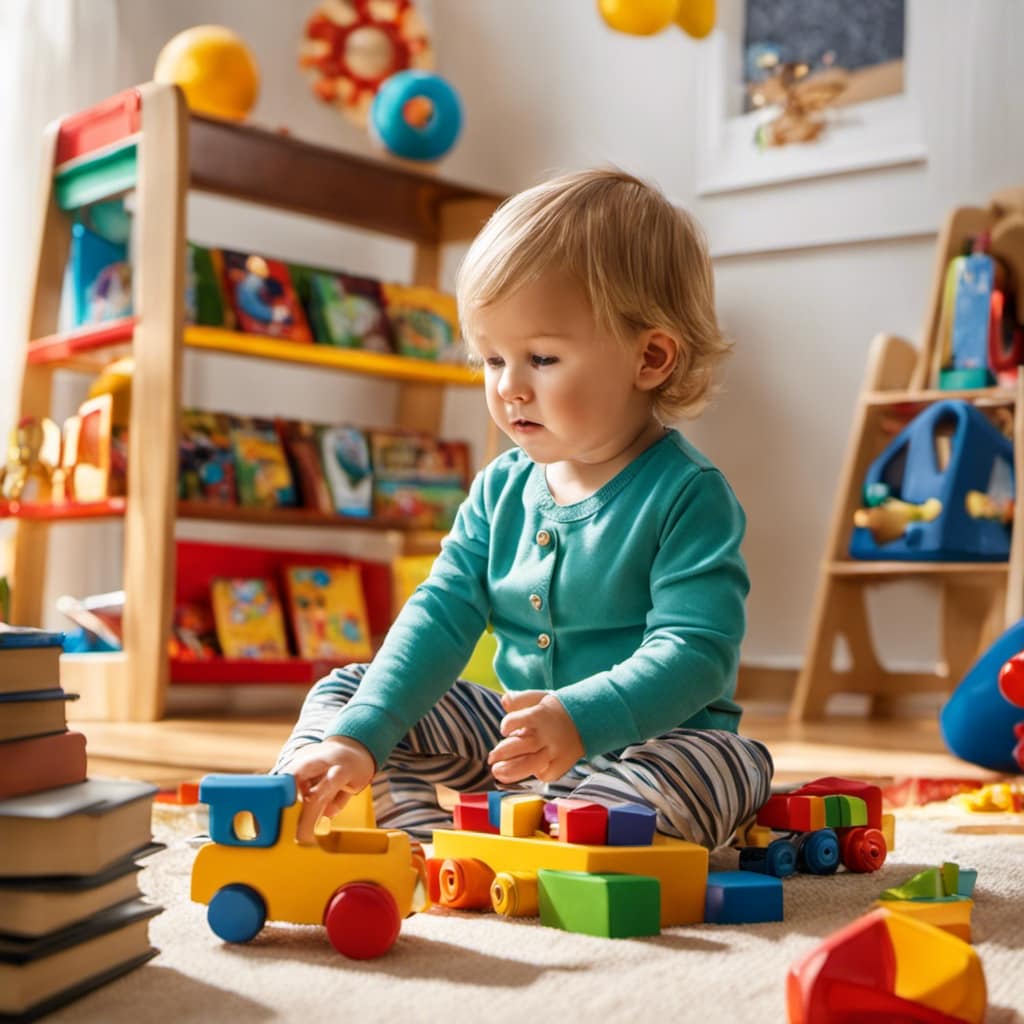
With their focus on sustainability and their dedication to creating innovative learning toys, PlanToys is a top choice for parents who want to provide their children with high-quality toys that aren’t only fun, but also good for the planet.
Learning Resources
Now let’s delve into the world of Learning Resources, a brand that seamlessly builds upon the foundation of sustainable and innovative learning toy design established by PlanToys.
Learning Resources understands the importance of hands-on learning in early childhood education. Their toys are designed to engage children in interactive and tactile experiences, allowing them to explore and learn through their senses. By providing children with the opportunity to physically manipulate objects, they can develop crucial cognitive and motor skills.
Learning Resources also recognizes the role of technology in enhancing learning resources. They incorporate technology into their toys in a way that complements and enhances the learning experience, rather than replacing traditional hands-on play. By combining the benefits of both physical and digital learning, Learning Resources creates well-rounded educational toys that foster holistic development.
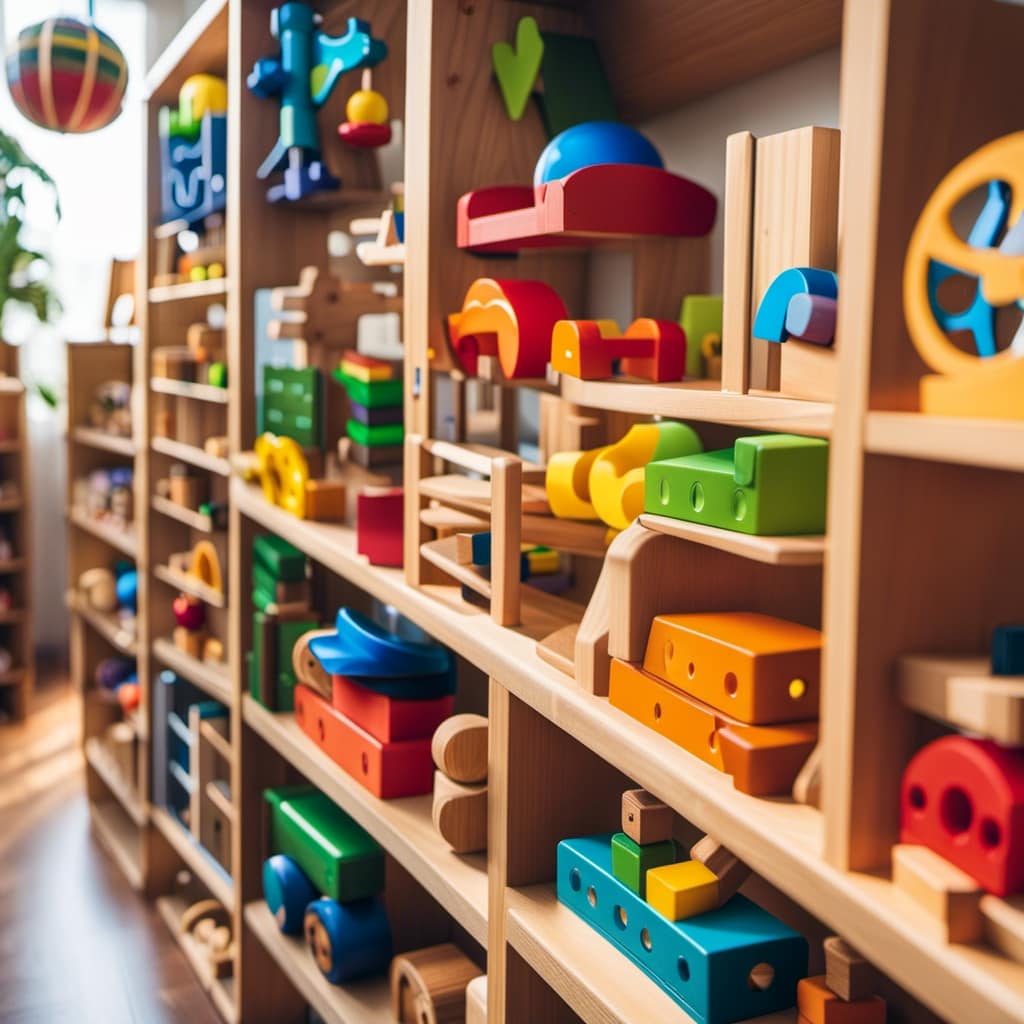
Now, let’s move on to the next section about Manhattan Toy, another top producer of quality learning toys.
Manhattan Toy
One of the top quality producers of learning toys is Manhattan Toy, offering a wide range of engaging and educational products for children. Manhattan Toy is known for its commitment to sustainable design, ensuring that their toys are both environmentally friendly and safe for children to play with. Their award-winning toys have been recognized for their innovative designs and ability to promote learning and development in children.
Manhattan Toy understands the importance of creating toys that aren’t only fun but also educational. They strive to create products that engage children’s minds and inspire creativity. With a focus on quality and durability, Manhattan Toy ensures that their toys can withstand the rigors of playtime, providing children with long-lasting enjoyment.
Whether it’s their colorful activity centers, interactive puzzles, or soft plush toys, Manhattan Toy continues to be a trusted brand for parents and educators alike. Their dedication to sustainable design and commitment to producing award-winning toys make them a top choice for those seeking high-quality learning toys for children.
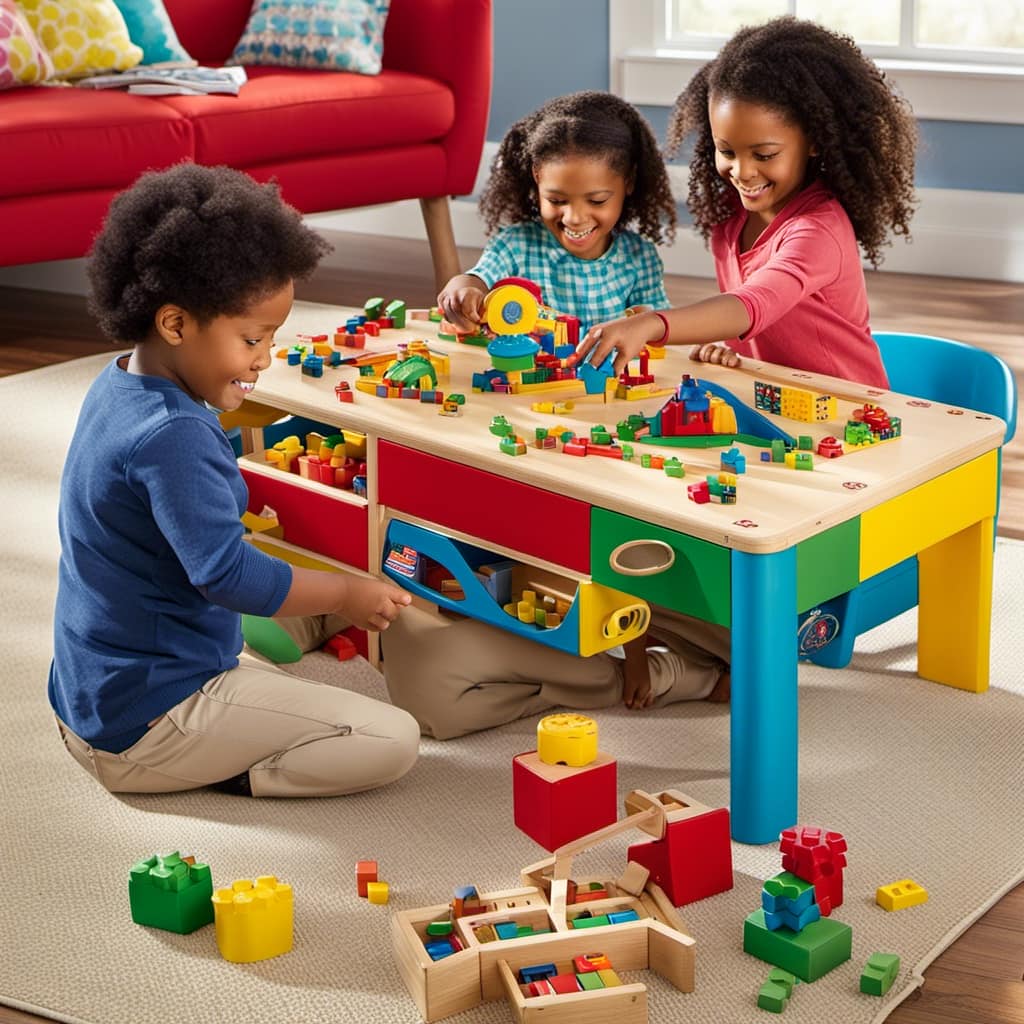
Frequently Asked Questions
What Is the History and Background of Melissa & Doug as a Company?
Melissa & Doug is a company known for producing high-quality learning toys. They have a rich history and background, with a focus on creating imaginative and educational toys that engage children’s minds and foster creativity. Some examples of their learning toys include wooden puzzles, pretend play sets, and arts and crafts kits.
Can You Provide Specific Examples of the Types of Learning Toys That Hape Produces?
Hape is a leading producer of learning toys that have a profound impact on child development. From building blocks to puzzles, their toys engage young minds and promote cognitive, physical, and social skills.
What Are the Main Principles Behind Plantoys’ Approach to Creating Learning Toys?
Plantoys’ innovative design, sustainable materials, and eco-friendly production are the main principles behind their approach to creating learning toys. We prioritize serving others by providing informative and objective expertise in our products.
How Does Learning Resources Ensure the Quality and Safety of Their Learning Toys?
Learning Resources ensures the quality and safety of their learning toys through rigorous quality control measures and obtaining relevant safety certifications. Our commitment to excellence and the well-being of children drives our dedication to these standards.
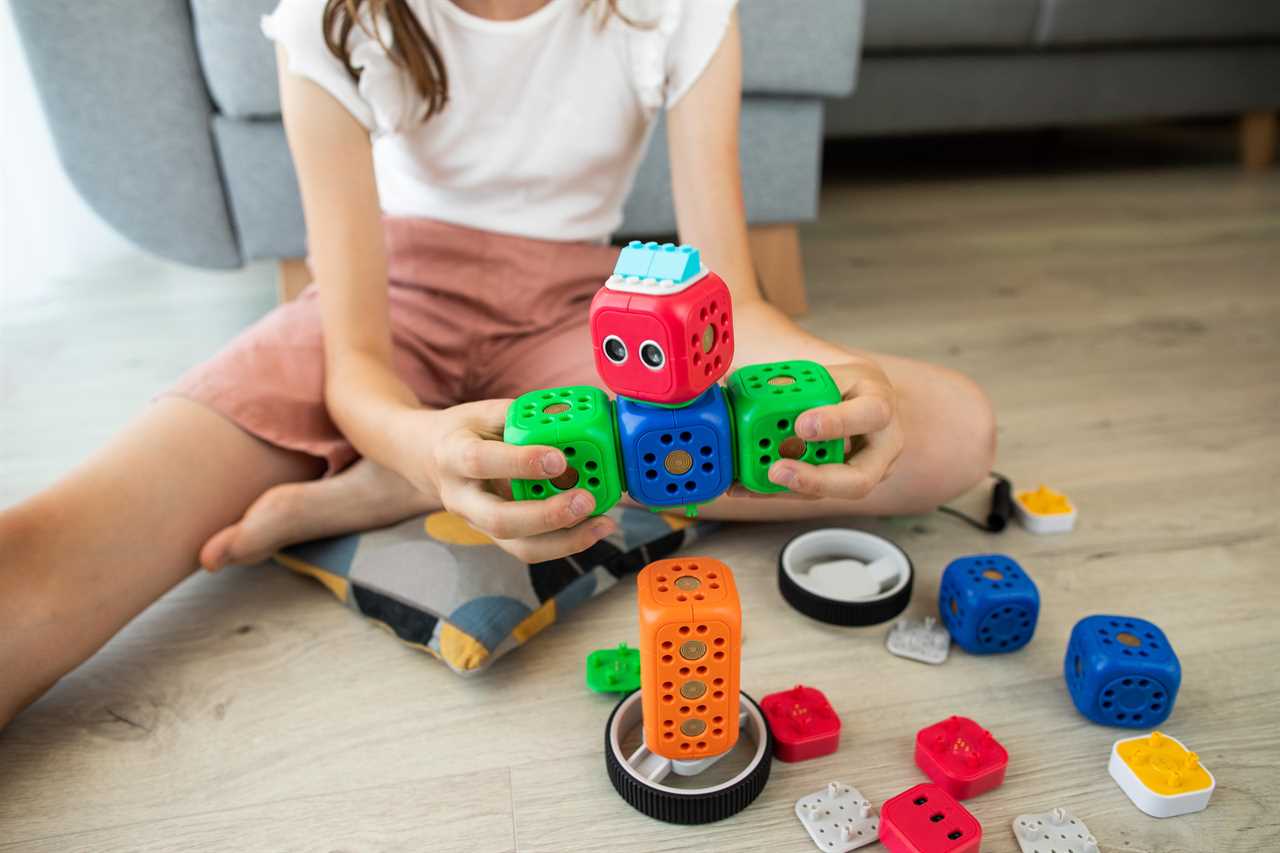
Can You Give Some Examples of the Different Types of Learning Toys That Manhattan Toy Offers?
Manhattan Toy offers a variety of learning toys, such as Skwish, Wimmer Ferguson, Whoozit, Baby Stella, and Groovy Girls. These toys are designed to engage children and promote their cognitive and sensory development.
Conclusion
In conclusion, when it comes to quality producers of learning toys, Melissa & Doug, Hape, PlanToys, Learning Resources, and Manhattan Toy are all top contenders. These companies have consistently shown their commitment to producing educational toys that engage children and enhance their learning experiences.
An interesting statistic to note is that Melissa & Doug alone has sold over 10 million learning toys worldwide, demonstrating their popularity and trust among parents and educators.
Overall, these brands are reliable choices for those seeking high-quality learning toys for children.
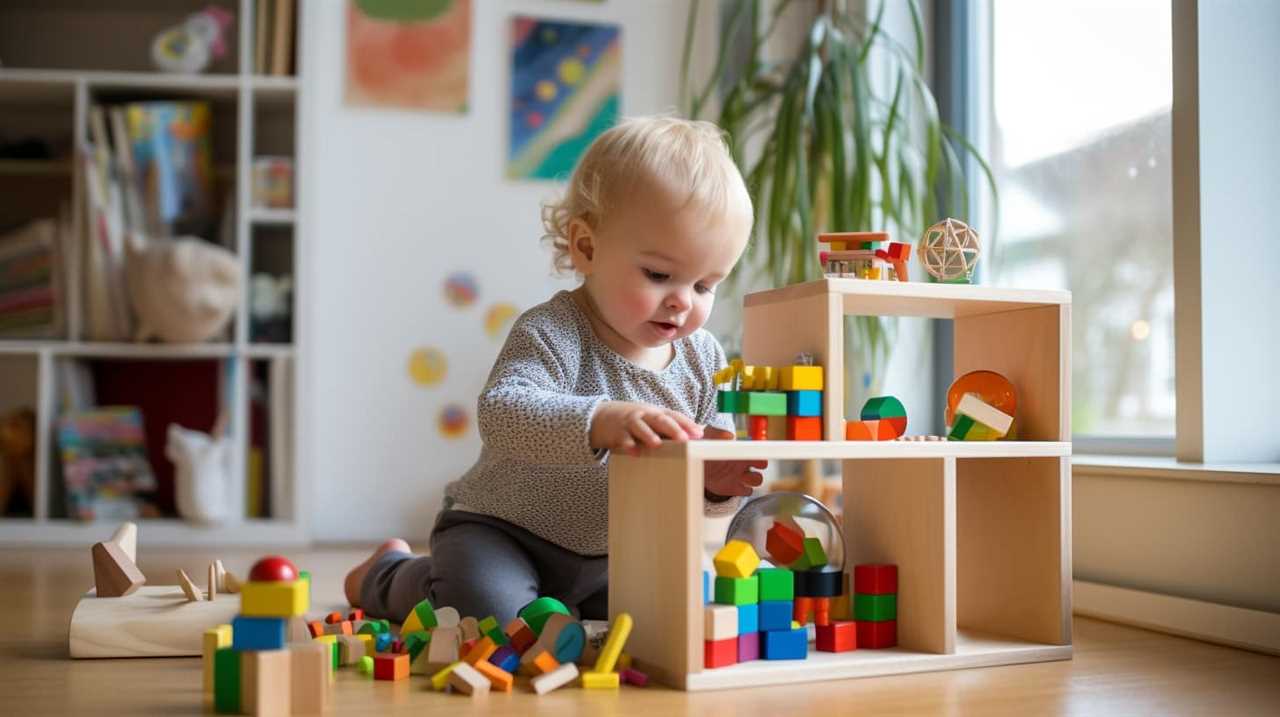
Montessori Toys
10 Best Strategies to Pick Educational Toys for Kids
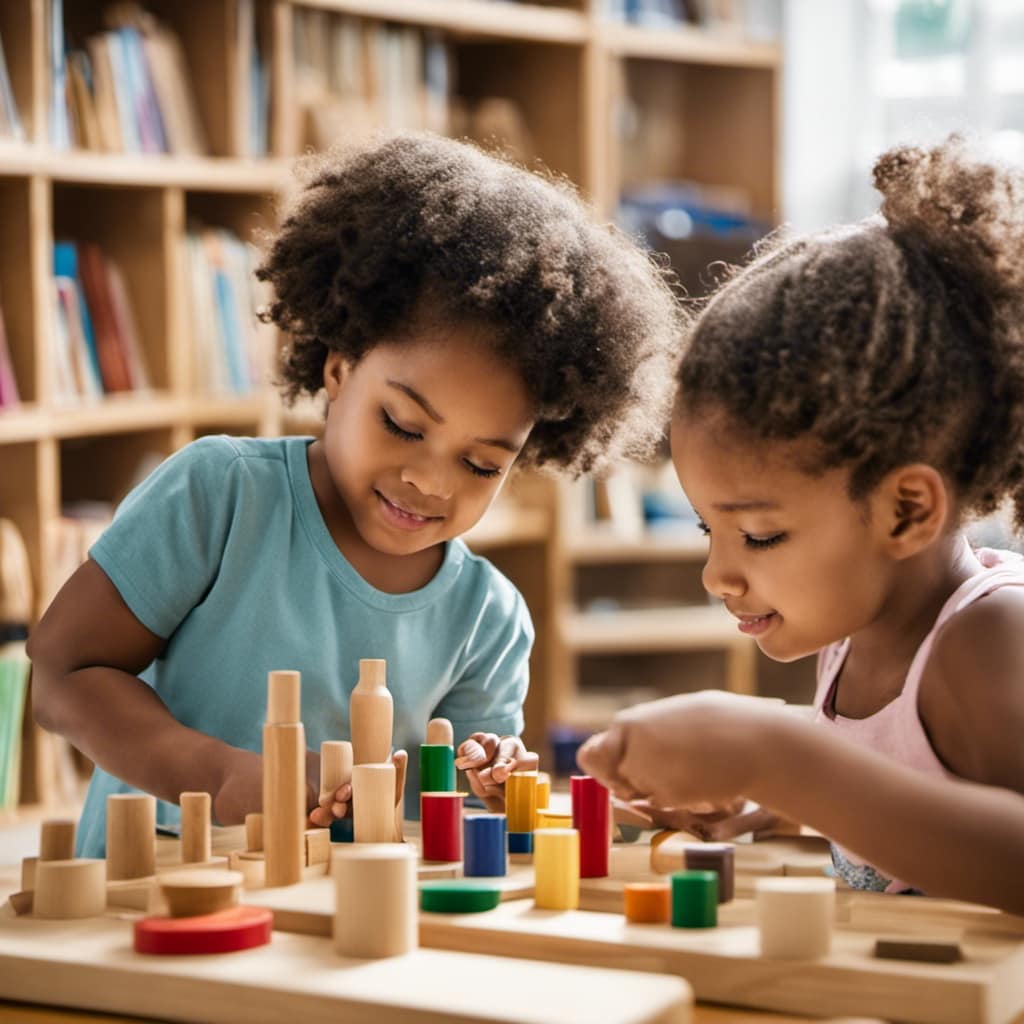
What we’ve uncovered is this: selecting the appropriate educational toys for children can truly make a significant difference.
With these 10 strategies in our back pocket, we can make sure we’re choosing toys that not only entertain but also educate.
From age-appropriate options to toys that promote problem-solving and social skills, we’ve got you covered.
So let’s dive in and explore the wonderful world of educational toys, because when it comes to our little ones, we want nothing but the best.
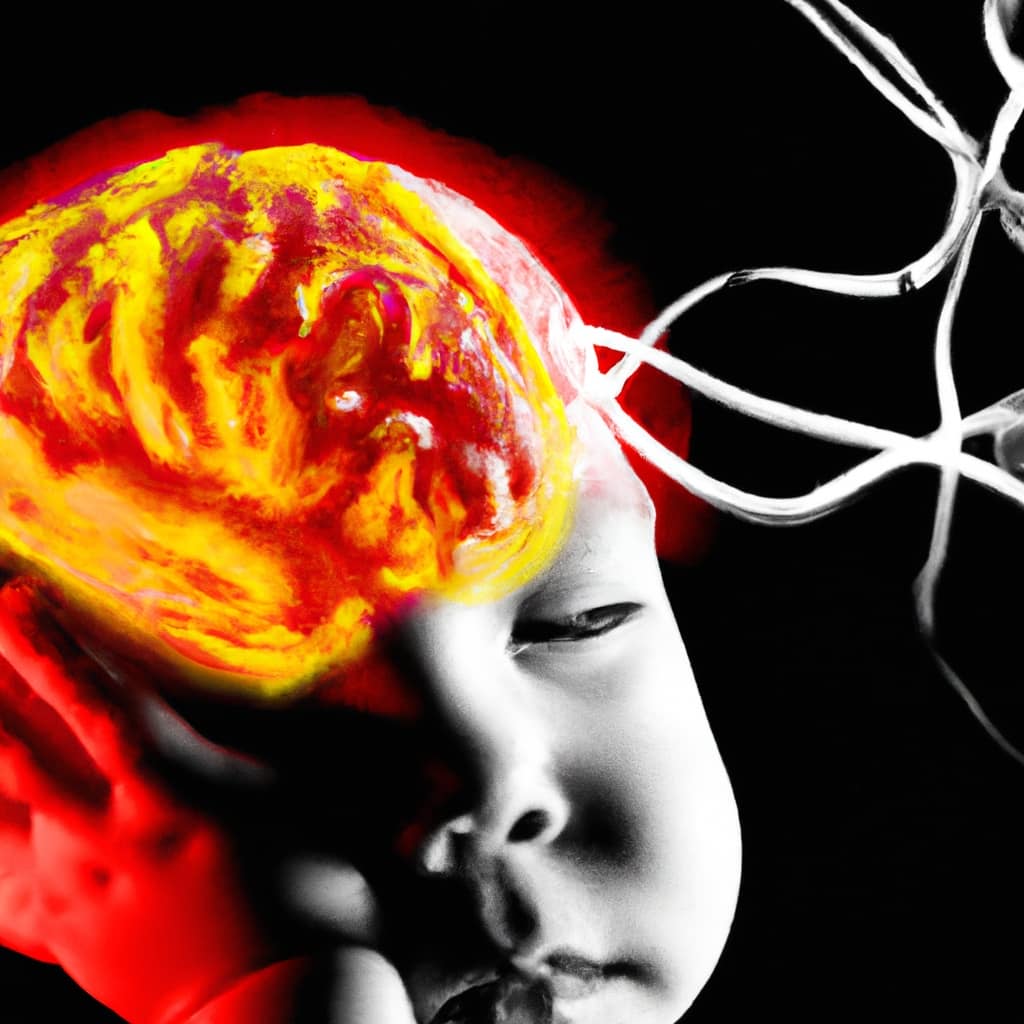
Key Takeaways
- Age-appropriate toys cater to specific developmental needs
- Sensory play engages multiple senses, promoting hands-on learning
- Open-ended play materials encourage creativity and problem-solving skills
- Educational toys foster problem-solving skills in children
Age-Appropriate Toys
In our search for the best educational toys for kids, we prioritize selecting age-appropriate toys that cater to their specific developmental needs. Age-appropriate toys play a crucial role in fostering multi-sensory exploration and cognitive development through play. These toys are carefully designed to engage children’s senses and provide them with opportunities to explore and learn. They stimulate their visual, auditory, tactile, and even olfactory senses, allowing them to make connections and understand the world around them in a meaningful way.
Multi-Sensory Learning Tools
When it comes to educational toys for kids, multi-sensory learning tools are an invaluable resource. These tools engage multiple senses, such as touch, sight, and hearing, to help children learn and retain information more effectively.
The benefits of sensory play are vast, as it promotes cognitive development, fine motor skills, and creativity. Choosing appropriate sensory toys that align with a child’s age and developmental stage is crucial to ensure maximum engagement and learning outcomes.
Benefits of Sensory Play
We have found that incorporating multi-sensory learning tools in sensory play has significant benefits for children’s educational development.
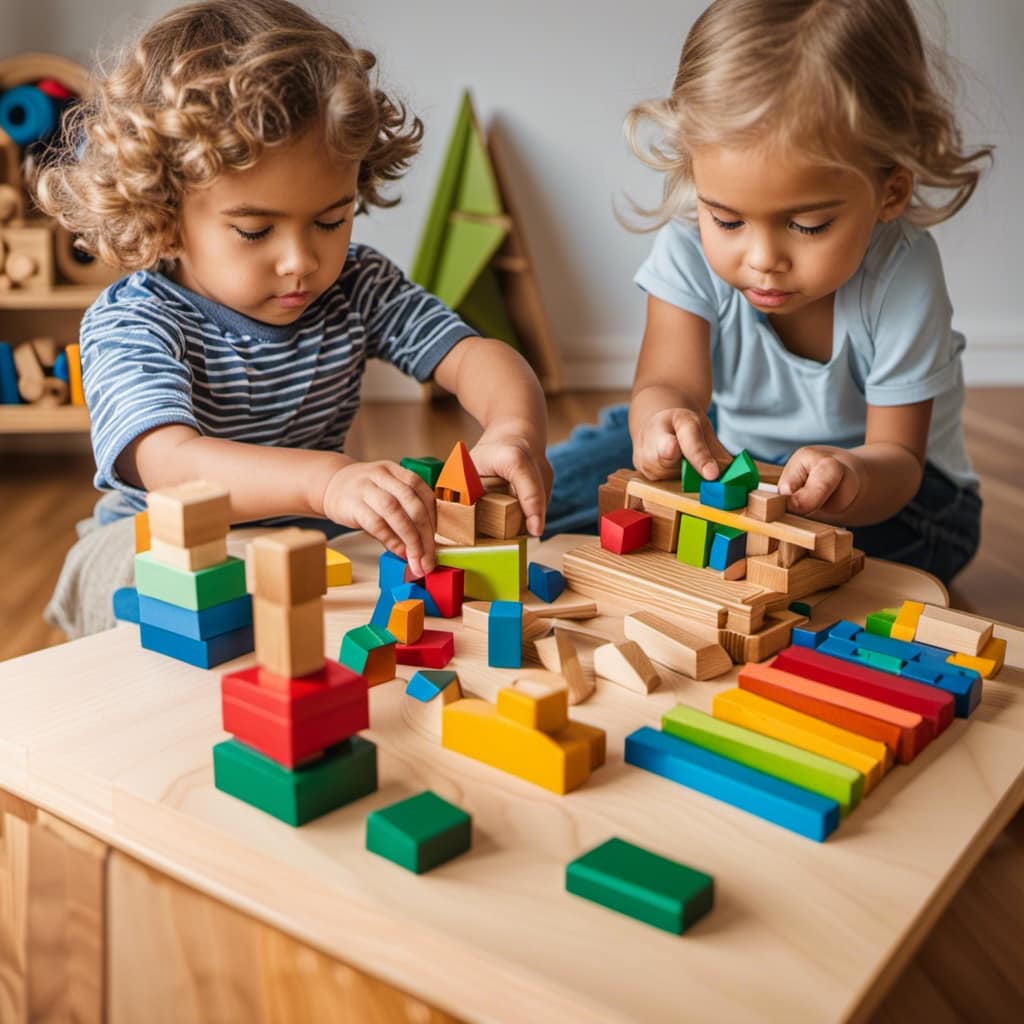
Sensory play benefits children in various ways, as it engages multiple senses, such as touch, sight, hearing, and sometimes even taste and smell. This type of play allows children to explore and understand the world around them in a hands-on and interactive manner.
Through sensory play, children develop their cognitive, social, emotional, and physical skills. It enhances their problem-solving abilities, creativity, and imagination. Moreover, sensory play promotes language development and communication skills, as children engage in conversations and storytelling during play.
By stimulating their senses, children become more curious and motivated to learn, leading to a deeper understanding of concepts.
Transitioning into the next section on choosing appropriate sensory toys, let’s explore how to select toys that cater to a child’s specific sensory needs.
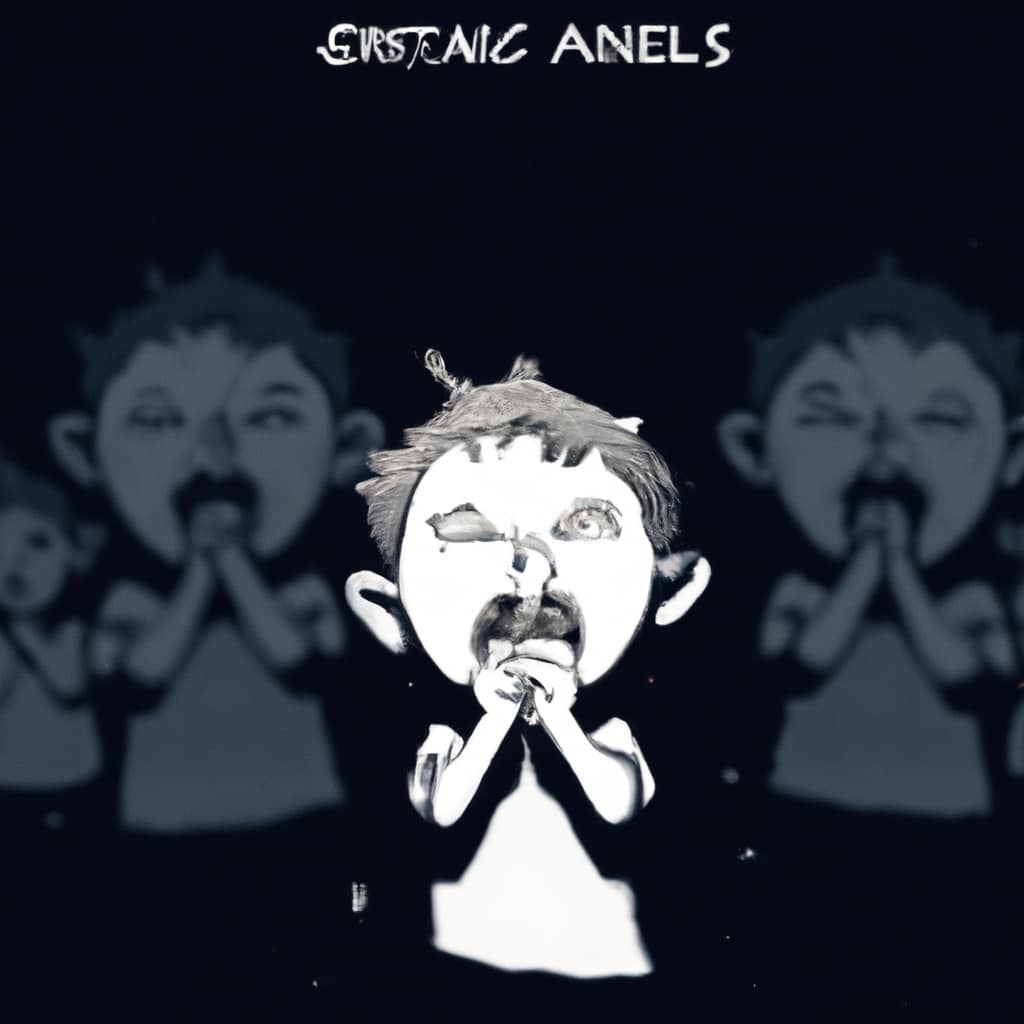
Choosing Appropriate Sensory Toys
To select the most suitable sensory toys for children, we consider their specific sensory needs and choose multi-sensory learning tools that engage multiple senses. Sensory toys provide numerous benefits for children, including enhancing their cognitive development, improving their motor skills, and promoting sensory integration.
When choosing appropriate toys, it’s important to consider the child’s individual interests and abilities. Look for toys that offer a variety of textures, colors, and sounds to stimulate different senses. Consider toys that encourage exploration, such as shape sorters, puzzles, or building blocks. Toys that provide opportunities for movement and physical activity, such as swings or trampolines, can also be beneficial.
Additionally, be mindful of any sensory sensitivities or preferences the child may have, and choose toys that cater to their specific needs.
Open-Ended Play Materials
As parents, our goal is to provide our children with educational toys that foster creativity and problem-solving skills. One effective strategy is to choose open-ended play materials. Open-ended play materials are toys that encourage sensory exploration and imaginative play. These toys don’t have a specific purpose or set of rules, allowing children to use their imagination and creativity to play in various ways.
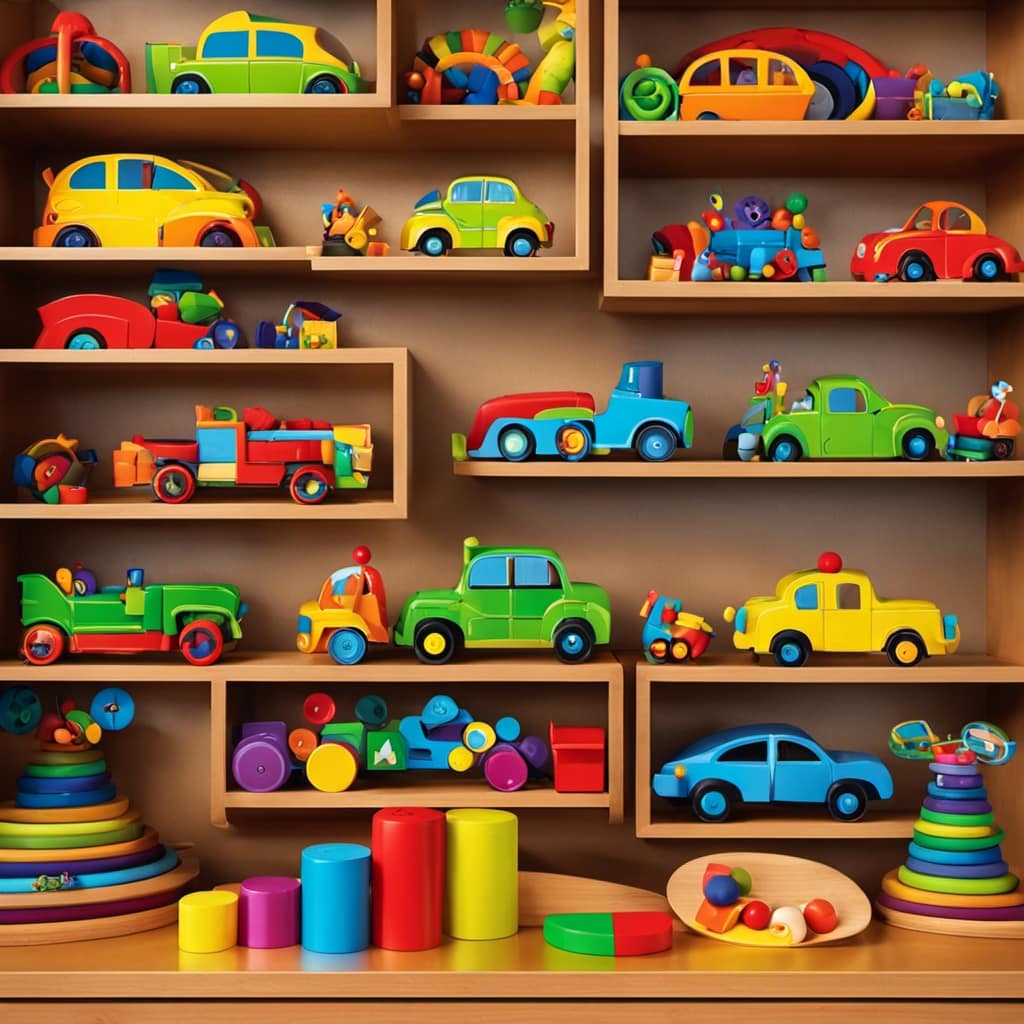
Examples of open-ended play materials include building blocks, art supplies, and pretend play sets. By providing our children with these types of toys, we’re giving them the freedom to explore different textures, colors, and shapes, as well as the opportunity to create their own stories and scenarios.
Open-ended play materials not only stimulate their senses but also promote critical thinking, problem-solving, and social skills.
Promote Fine Motor Skills Development
One effective way to enhance fine motor skills development is through the use of toys that require precise hand-eye coordination.
Fine motor skills activities and hand-eye coordination exercises are crucial for children’s overall development, as they help improve their dexterity and control over small muscle movements.

Toys such as building blocks, puzzles, and stringing beads are great options to consider. These toys not only engage children in creative play but also encourage them to use their fingers and hands in a coordinated manner.
By manipulating small objects and fitting them together, children develop their fine motor skills and hand-eye coordination. These activities also promote concentration, problem-solving skills, and spatial awareness.
As parents and educators, it’s important to choose toys that provide opportunities for children to enhance their fine motor skills while having fun and learning at the same time.
Encourage Problem-Solving Abilities
Let’s explore how educational toys can foster problem-solving abilities in children. Encouraging critical thinking and logical reasoning skills is essential for their cognitive development.

Here are three ways educational toys can help enhance problem-solving abilities:
-
Puzzle Games: Toys like jigsaw puzzles or building blocks challenge children to analyze and solve problems by fitting the pieces together. This promotes spatial awareness, problem decomposition, and logical reasoning.
-
STEM Toys: Science, technology, engineering, and math toys provide hands-on experiences that require problem-solving skills. Through experiments and building projects, children learn to think critically and find innovative solutions to challenges.
-
Strategy Board Games: Games like chess or strategic card games teach children to think ahead, plan their moves, and anticipate consequences. These games improve their analytical thinking and decision-making abilities.

Foster Creativity and Imagination
When it comes to choosing educational toys for kids, fostering creativity and imagination is essential.
Open-ended play benefits children by allowing them to explore their own ideas and solutions, encouraging a sense of independence and problem-solving skills.
Imaginative play is also crucial as it helps children develop their storytelling abilities and expand their creative thinking.
Open-Ended Play Benefits
We believe that open-ended play offers significant benefits for children, fostering their creativity and imagination. Here are three ways in which open-ended play can positively impact children and contribute to their overall development:

-
Long term benefits: Engaging in open-ended play allows children to explore their interests and passions, leading to a deeper understanding and appreciation of various subjects. This curiosity-driven learning can have long-term benefits, as it instills a love for learning and encourages children to become lifelong learners.
-
Critical thinking skills: Open-ended play encourages children to think outside the box and come up with innovative solutions to problems. By using their imagination and creativity, children learn to analyze situations, make decisions, and solve problems independently. These critical thinking skills are essential for success in school and in life.
-
Imagination and creativity: Open-ended play provides children with the opportunity to unleash their imagination and creativity. It allows them to create their own narratives, scenarios, and worlds, fostering their ability to think creatively and invent new ideas. This imaginative play not only enhances their cognitive abilities but also promotes emotional development, as children express their thoughts and feelings through play.
Importance of Imaginative Play
To emphasize the importance of fostering creativity and imagination, it is crucial that we recognize the role of imaginative play in children’s development. Pretend play, also known as imaginative play, allows children to create their own narratives, explore their imaginations, and develop problem-solving skills. It provides a platform for children to express themselves, think critically, and make sense of the world around them.
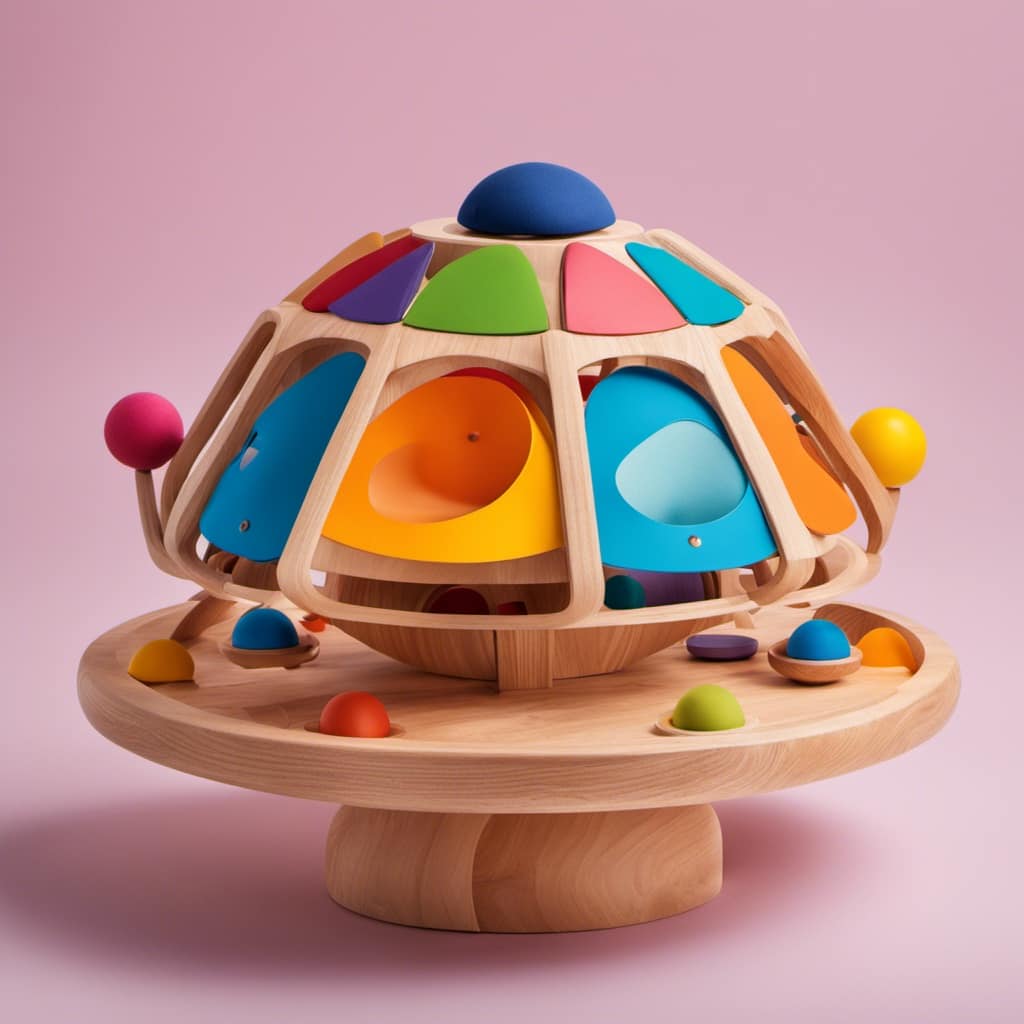
Creative thinking is a valuable skill that children can cultivate through imaginative play. It enables them to come up with unique solutions, think outside the box, and adapt to different situations. By encouraging pretend play, we are nurturing their creativity and giving them the freedom to explore their ideas.
Here is a table that illustrates the benefits of imaginative play:
| Benefits of Imaginative Play |
|---|
| 1. Enhances creativity |
| 2. Develops problem-solving skills |
| 3. Encourages critical thinking |
Through imaginative play, children not only have fun but also gain valuable skills that will benefit them in various aspects of their lives. It is our responsibility to provide them with the necessary tools and opportunities to engage in pretend play and foster their creative thinking abilities.
Support Cognitive Development
Supporting cognitive development is essential for children’s learning and growth. It plays a crucial role in shaping their understanding, problem-solving abilities, and overall learning potential.
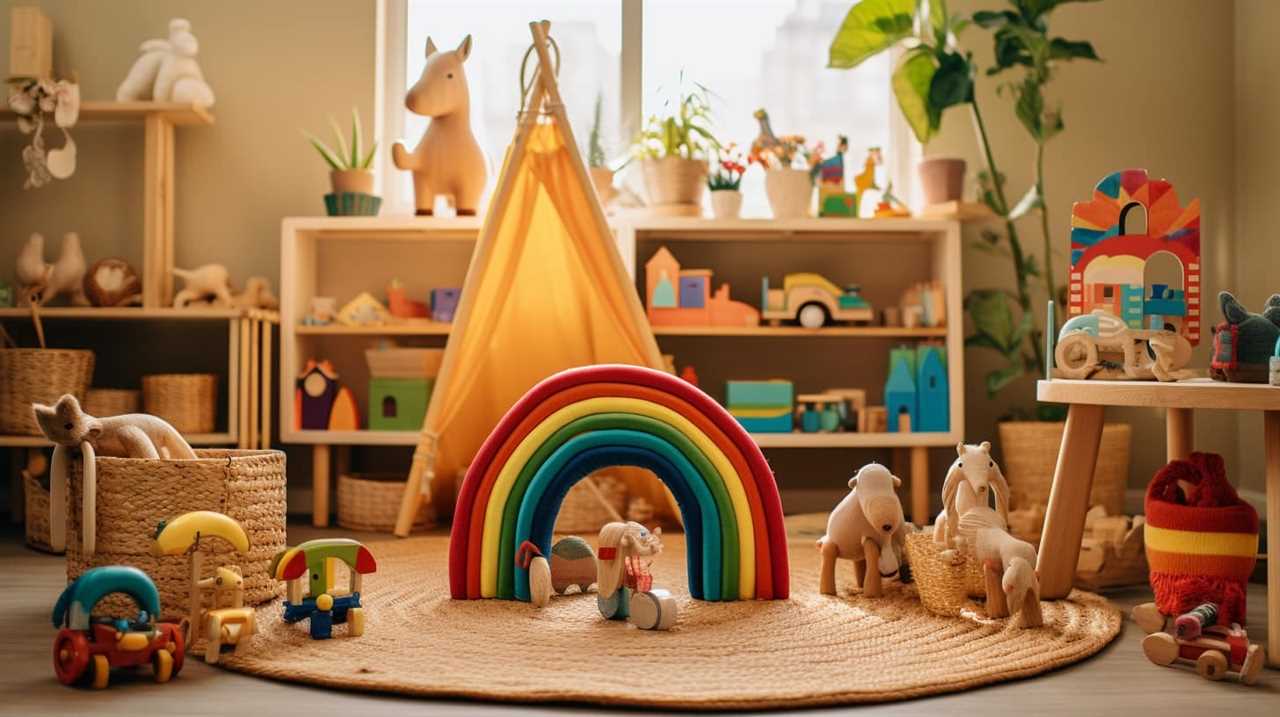
Here are three ways in which educational toys can support cognitive development:
-
Enhancing problem-solving skills: Toys that require children to think critically and find solutions to challenges can help develop their problem-solving abilities. This can include puzzles, building blocks, or games that encourage logical thinking.
-
Promoting creativity and imagination: Toys that allow children to express their creativity and imagination can greatly contribute to their cognitive development. Art supplies, construction sets, or pretend play toys can stimulate their thinking and help them explore new ideas and concepts.
-
Fostering memory and attention skills: Toys that involve memory-based activities, such as memory games or matching cards, can help improve a child’s memory and attention span. These activities require concentration and focus, which are important cognitive skills.

Enhance Social and Emotional Skills
When it comes to educational toys, it’s important to consider how they can enhance a child’s social and emotional skills.
One key aspect is fostering empathy, which helps children understand and relate to the feelings and experiences of others.
Additionally, toys that encourage cooperative play can help children build friendships and learn important social skills such as taking turns and resolving conflicts.
Importance of Empathy
Enhancing social and emotional skills, empathy plays a crucial role in the development of children. It’s a powerful tool that allows kids to understand and share the feelings of others, fostering positive relationships and promoting a compassionate society.
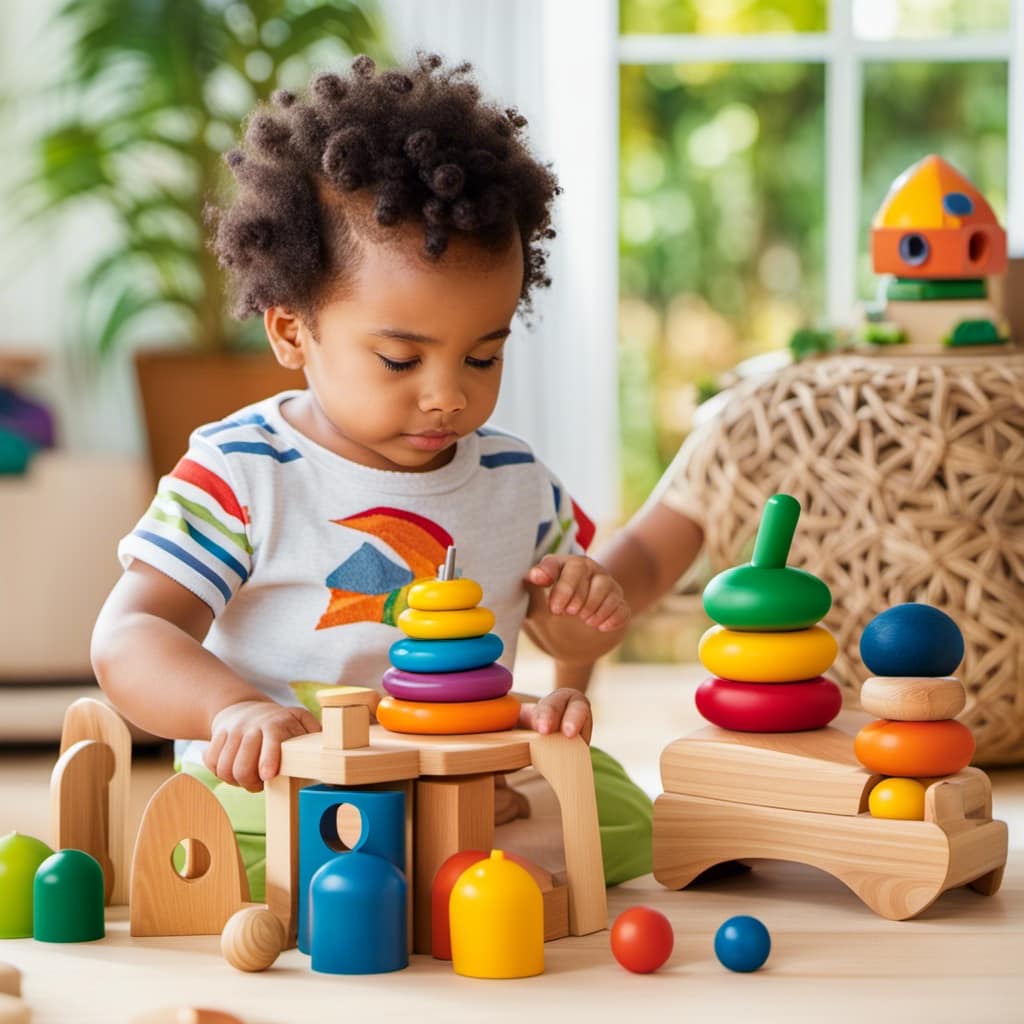
When it comes to empathy building and teaching compassion, here are three important things to consider:
-
Modeling Empathy: Children learn by observing and imitating their caregivers. Show them empathy in your daily interactions, and they’ll learn to do the same.
-
Encouraging Perspective-Taking: Help children see situations from different viewpoints. Encourage them to imagine how others may feel in certain situations, promoting understanding and empathy.
-
Practicing Emotional Literacy: Teach children to identify and express their own emotions, as well as recognize and respond to the feelings of others. This helps build empathy and promotes effective communication.

Building Friendships Through Play
As we continue our exploration of enhancing social and emotional skills, let’s now delve into the importance of building friendships through play.
Friendship building is a crucial aspect of a child’s development, as it helps them learn how to interact, communicate, and collaborate with others.
Engaging in cooperative play allows children to work together towards a common goal, fostering teamwork and problem-solving skills.
By playing with others, children develop empathy, understanding, and respect for different perspectives and opinions.
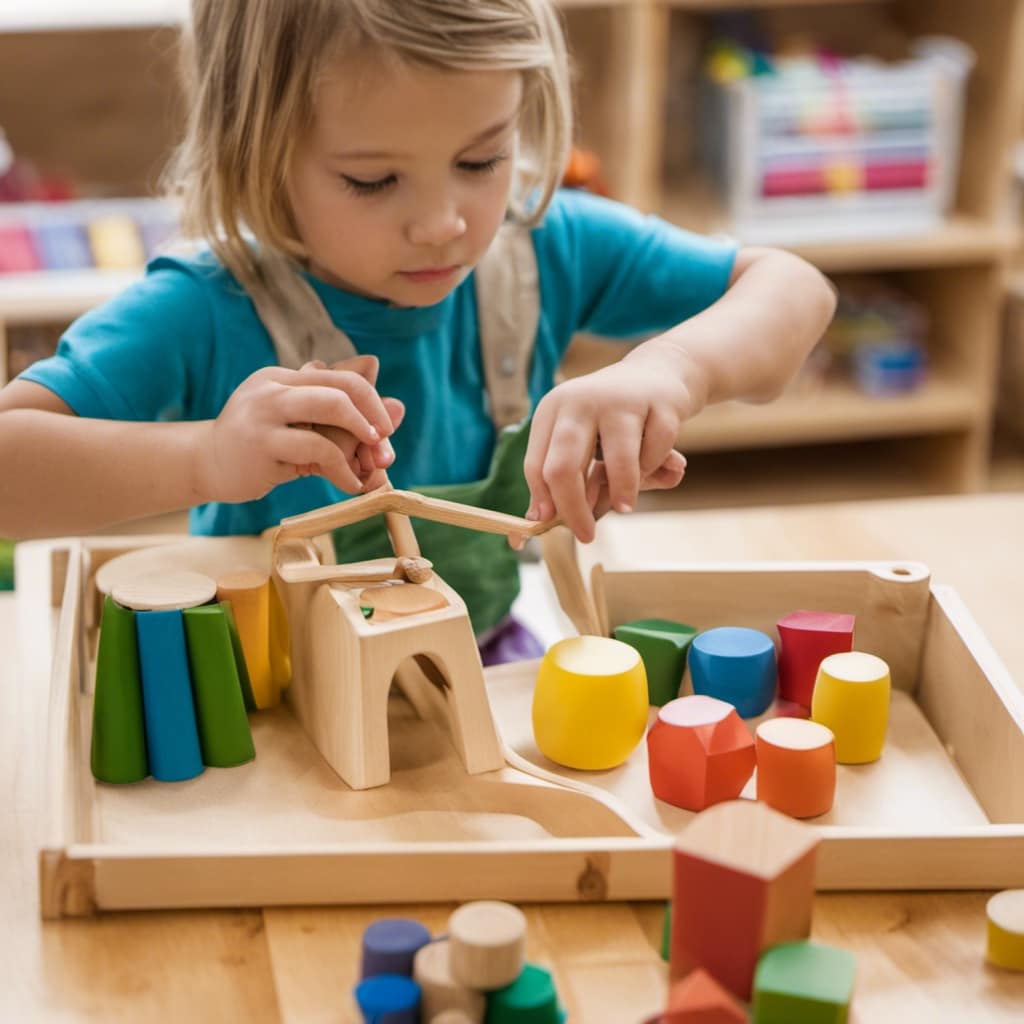
Through shared experiences and activities, they learn to navigate conflicts, negotiate, and compromise, laying the foundation for healthy relationships in the future.
Moreover, building friendships through play promotes a sense of belonging and inclusion, boosting a child’s self-esteem and overall well-being.
Encouraging cooperative play and providing opportunities for social interaction can greatly contribute to a child’s social and emotional development.
Consider Safety and Durability
Ensuring the safety and durability of educational toys is a crucial factor to consider when selecting them for children. When it comes to the well-being of our little ones, we must choose toys that are made from child-friendly materials and are free from any harmful substances. This includes checking for non-toxic paints, BPA-free plastics, and sturdy construction.

Here are three key points to keep in mind:
-
Material quality: Opt for toys made from high-quality, durable materials that can withstand rough play and won’t break easily.
-
Safety standards: Look for toys that comply with safety regulations and have undergone rigorous testing to ensure they meet the necessary standards.
-
Age appropriateness: Consider the age range recommended by the manufacturer to ensure the toy is suitable for your child’s developmental stage.

By prioritizing safety and durability, we can provide our children with long-lasting toys that are both fun and safe.
Transitioning into the next section, let’s now explore the importance of value for money and longevity when selecting educational toys.
Value for Money and Longevity
When selecting educational toys, we prioritize the value for money and longevity they offer.
We understand that parents and caregivers want to make wise investments in toys that not only provide educational benefits but also last for a considerable period of time.
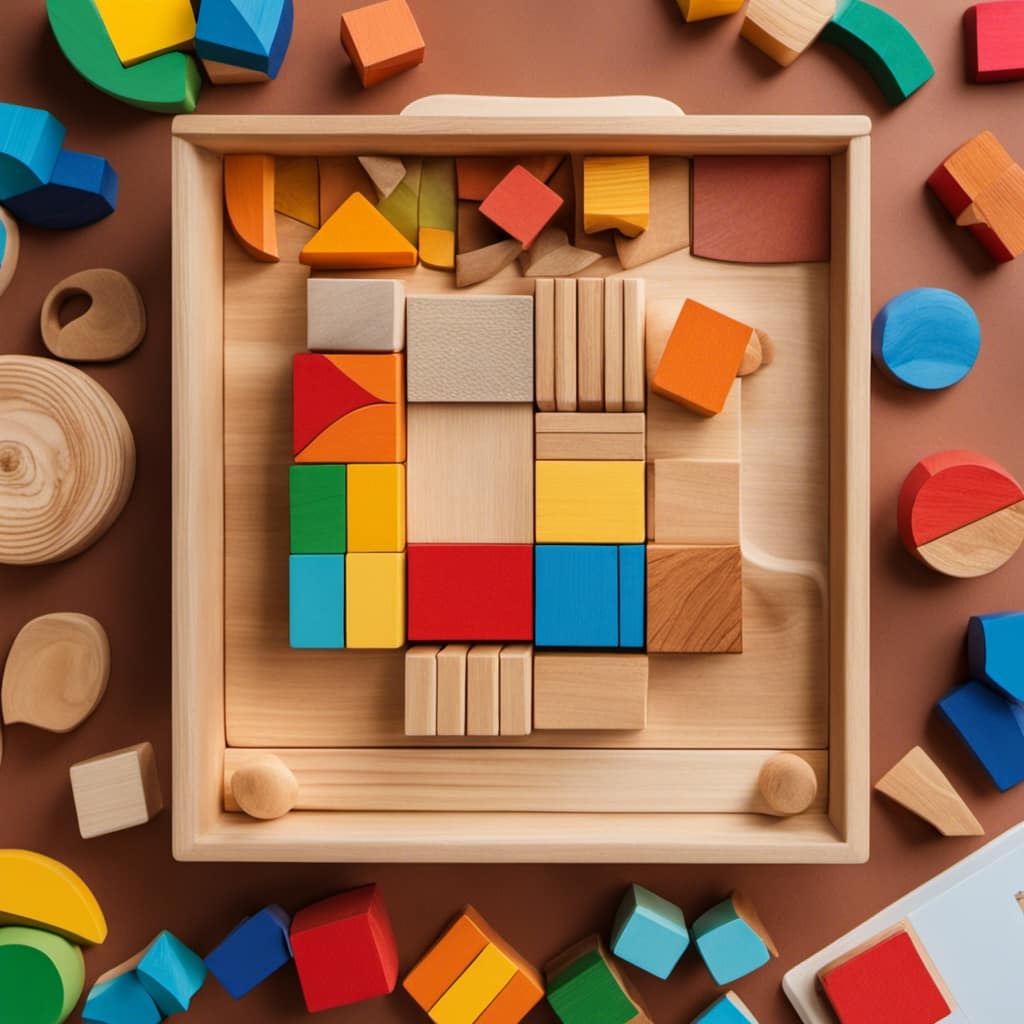
Value for money refers to the overall quality and usefulness of the toy in relation to its price. It’s important to consider if the toy offers a wide range of educational benefits that align with the child’s developmental needs.
Additionally, longevity refers to the durability and ability of the toy to withstand regular play and potential wear and tear.
Frequently Asked Questions
How Can Educational Toys Enhance Social and Emotional Skills in Children?
Educational toys can enhance social and emotional skills in children by fostering communication and enhancing empathy. They provide opportunities for children to practice cooperation, problem-solving, and understanding others’ perspectives, leading to stronger social and emotional development.
What Are Some Examples of Open-Ended Play Materials?
When it comes to picking educational toys for kids, we believe that focusing on sensory exploration and creative thinking is key. Open-ended play materials, like blocks and art supplies, can be great examples of fostering these skills.
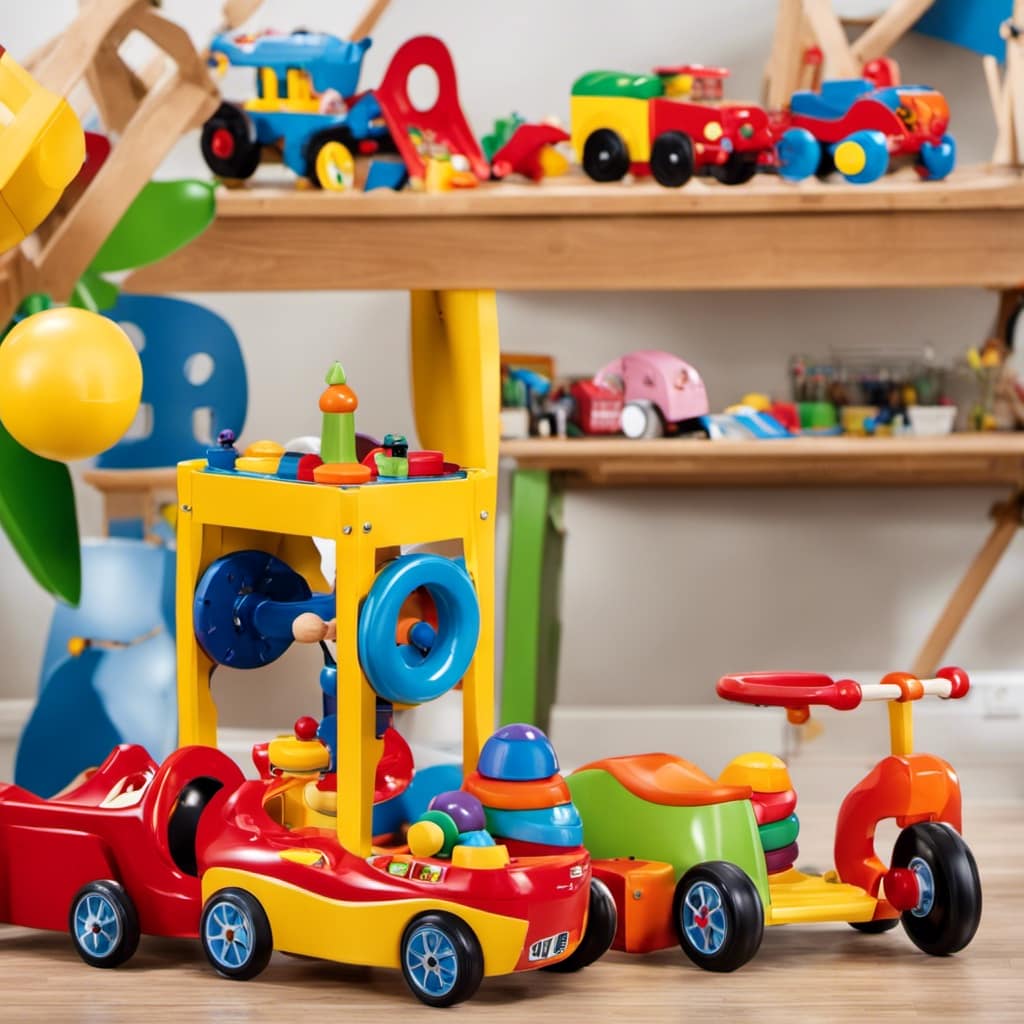
How Do Multi-Sensory Learning Tools Benefit a Child’s Development?
Using multi-sensory learning tools has numerous benefits for a child’s development. It enhances cognitive skills, promotes problem-solving abilities, and encourages creativity. The impact on cognitive development is remarkable, making it an ideal choice for educational toys.
Can You Provide Some Tips for Ensuring Safety and Durability When Selecting Educational Toys?
When selecting educational toys, we prioritize safety and durability. For example, we consider age-appropriate features, such as non-toxic materials and rounded edges. Additionally, we look for toys that withstand rough play and are easy to clean.
What Factors Should Be Considered to Determine the Value for Money and Longevity of an Educational Toy?
When determining the value for money and longevity of an educational toy, we consider factors such as the material quality, educational benefits, versatility, and potential for growth and development.
Conclusion
In conclusion, choosing the right educational toys for children is crucial for their holistic development.
By considering age-appropriateness, multi-sensory learning tools, and open-ended play materials, we can foster their fine motor skills, problem-solving abilities, and cognitive development.
Additionally, these toys can enhance social and emotional skills while prioritizing safety and durability.
With the right choices, we can provide value for money and long-lasting educational experiences that will ignite a child’s imagination and catapult them towards future success.
So, let’s embark on this exciting journey of learning and growth together!

Montessori Toys
10 Steps to Select Eco-Friendly Toy Materials

Searching for environmentally friendly toy materials? Search no more! Our 10 steps will guide you in picking the top choices.
From researching Montessori Toy Safety Standards to considering natural and organic materials, we’ll guide you towards non-toxic, sustainable, and ethical choices.
Say goodbye to plastics and synthetic materials, and hello to a safer and greener playtime experience. Let’s embark on this journey together!
Key Takeaways
- Non-toxic and chemical-free toys reduce the risk of exposure to harmful chemicals and promote a safe and healthy play environment.
- Sustainable and renewable resources should be prioritized for eco-friendly toy materials to promote responsible sourcing and reduce environmental impact.
- The use of recycled and upcycled materials in toy manufacturing has a positive environmental impact by reducing waste and conserving resources.
- Opting for water-based and non-VOC paints for eco-friendly toys helps minimize the release of harmful chemicals into the environment and ensures safer indoor air quality.
Research Montessori Toy Safety Standards
We researched the Montessori toy safety standards to ensure that our eco-friendly toy materials meet the highest level of safety requirements. The Montessori toy manufacturing process emphasizes the use of non-toxic and environmentally friendly materials. This is crucial as children are prone to putting toys in their mouths, and the last thing we want is for them to be exposed to harmful chemicals.
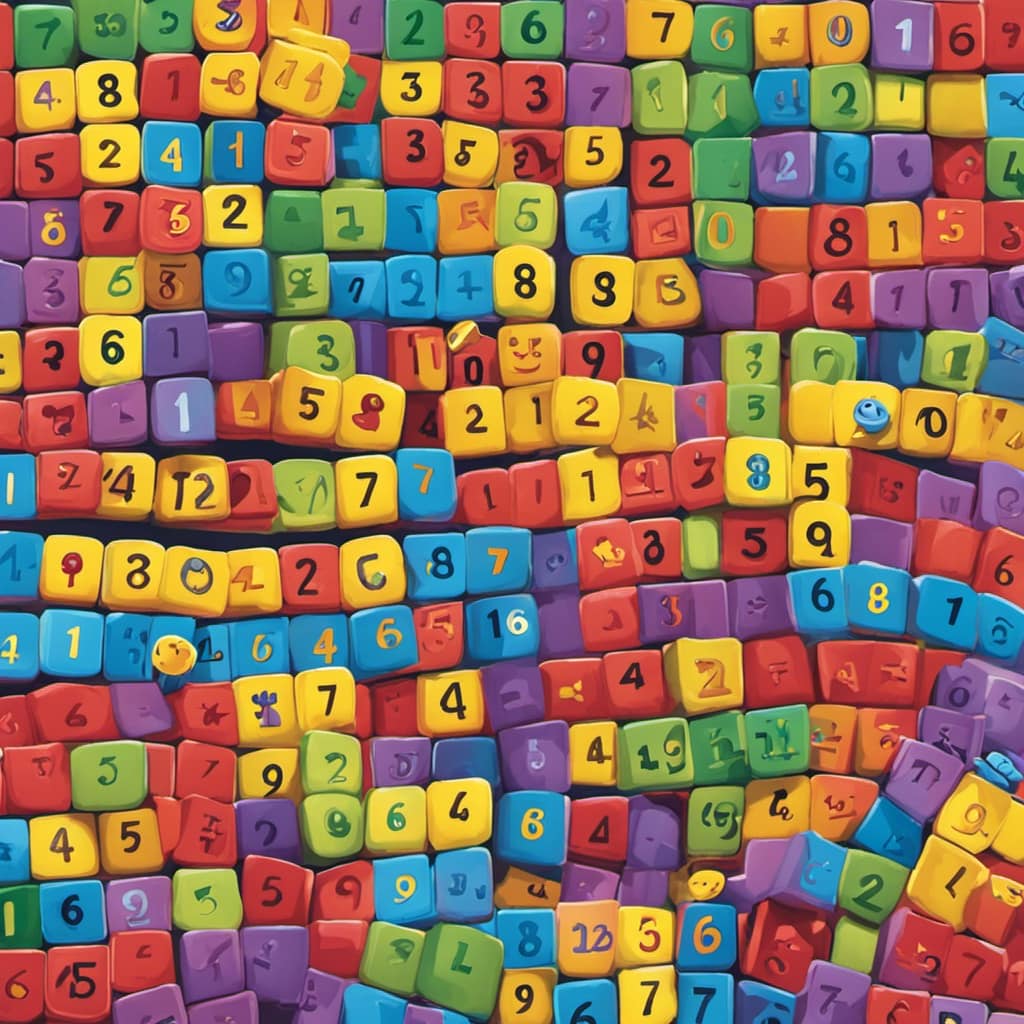
By adhering to these safety standards, we can provide parents with peace of mind, knowing that our toys are safe for their children to play with.
Additionally, the importance of eco-friendly toy materials can’t be overstated. Using sustainable and renewable resources minimizes our impact on the environment and contributes to a healthier planet for future generations.
Transitioning into the next section, let’s now consider the benefits of using natural and organic materials in toy manufacturing.
Consider Natural and Organic Materials
When considering eco-friendly toy materials, it’s important to take into account the benefits of natural and organic materials.

Natural materials such as wood, cotton, and bamboo are renewable resources that have minimal impact on the environment.
Additionally, choosing toys made from organic materials ensures that harmful chemicals, such as lead and phthalates, are avoided, providing a safer play experience for children.
Benefits of Natural Materials
Natural materials offer numerous benefits when considering eco-friendly toy materials. By using natural and organic materials in the production of toys, we can promote eco consciousness and contribute to a healthier environment. Here are some key benefits of using natural materials:
- Sustainability: Natural materials are often derived from renewable sources, reducing the strain on our planet’s resources.
- Biodegradability: Toys made from natural materials can decompose over time, minimizing their impact on landfills.
- Non-toxicity: Natural materials are less likely to contain harmful chemicals, ensuring the safety of children during play.
By opting for toys made from natural materials, we can support sustainable practices, reduce waste, and prioritize the well-being of children.
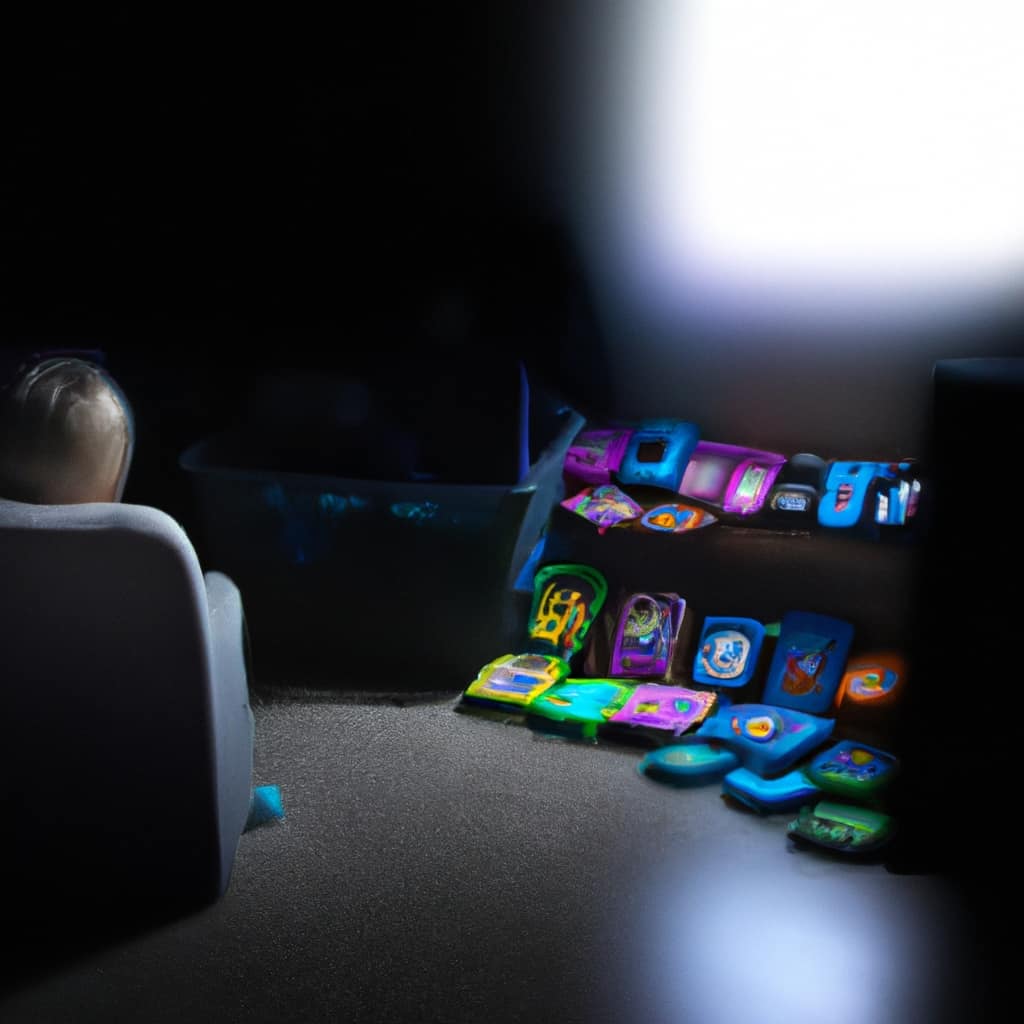
However, it’s also important to consider the avoidance of harmful chemicals in toy materials to further safeguard the health of both children and the environment.
Avoiding Harmful Chemicals
How can we ensure the safety of children and the environment by selecting eco-friendly toy materials that avoid harmful chemicals? One way is to consider natural and organic materials as alternatives to conventional options. These eco-friendly alternatives not only reduce the exposure of children to harmful chemicals, but also minimize the negative impact on the environment.
To help you make informed choices, here is a table comparing common toy materials and their eco-friendliness:
| Toy Material | Eco-Friendliness Rating |
|---|---|
| Plastic | Low |
| Wood | High |
| Organic Cotton | High |
Avoid Plastics and Synthetic Materials
To select eco-friendly toy materials, we should avoid using plastics and synthetic materials. Plastics and synthetic materials are derived from non-renewable resources and are known to release harmful chemicals into the environment during production and disposal.
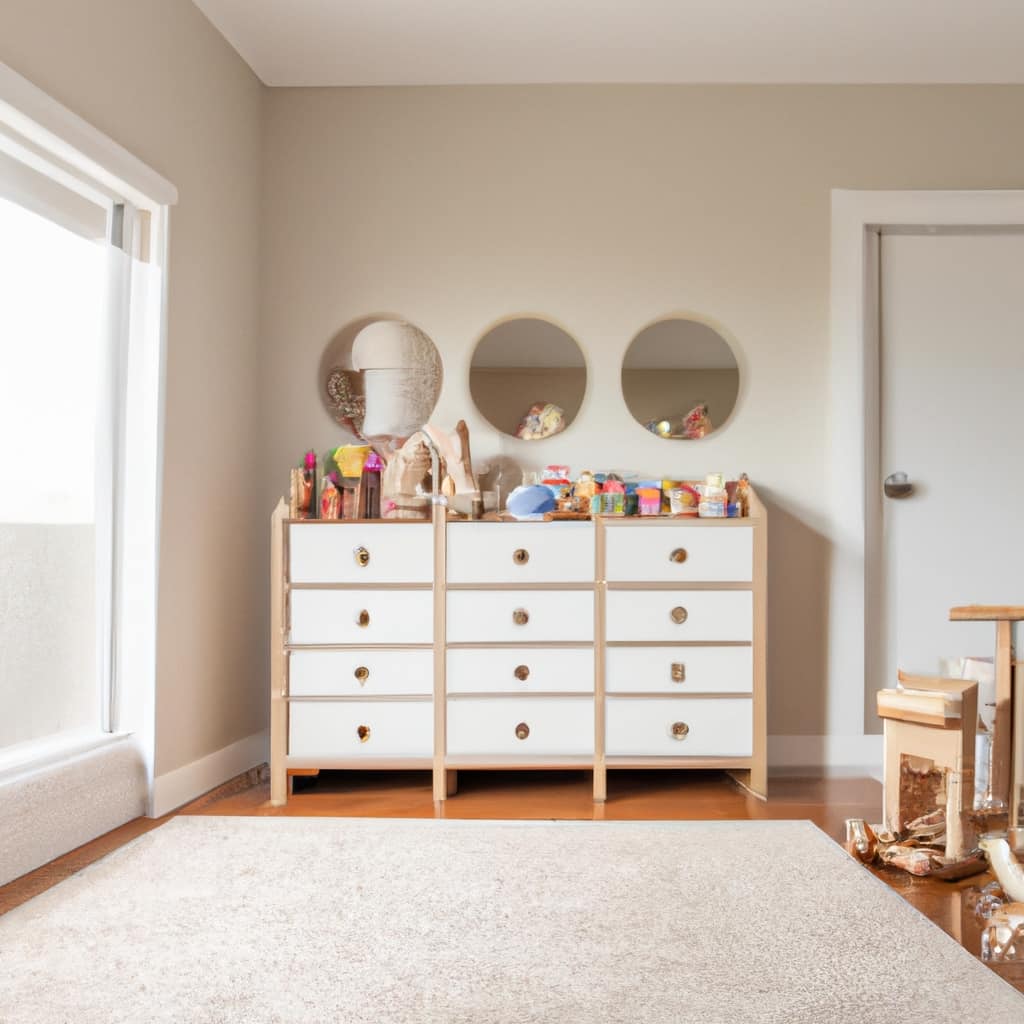
Instead, we can choose alternative materials that are more sustainable and safe for children. Here are some research-backed alternatives:
-
Natural Wood: Wooden toys are a great option as they’re made from renewable resources and can be biodegradable.
-
Organic Fabrics: Toys made from organic cotton or hemp are free from harmful chemicals and are gentle on the environment.
-
Recycled Materials: Toys made from recycled materials, such as recycled plastic or cardboard, help reduce waste and promote a circular economy.
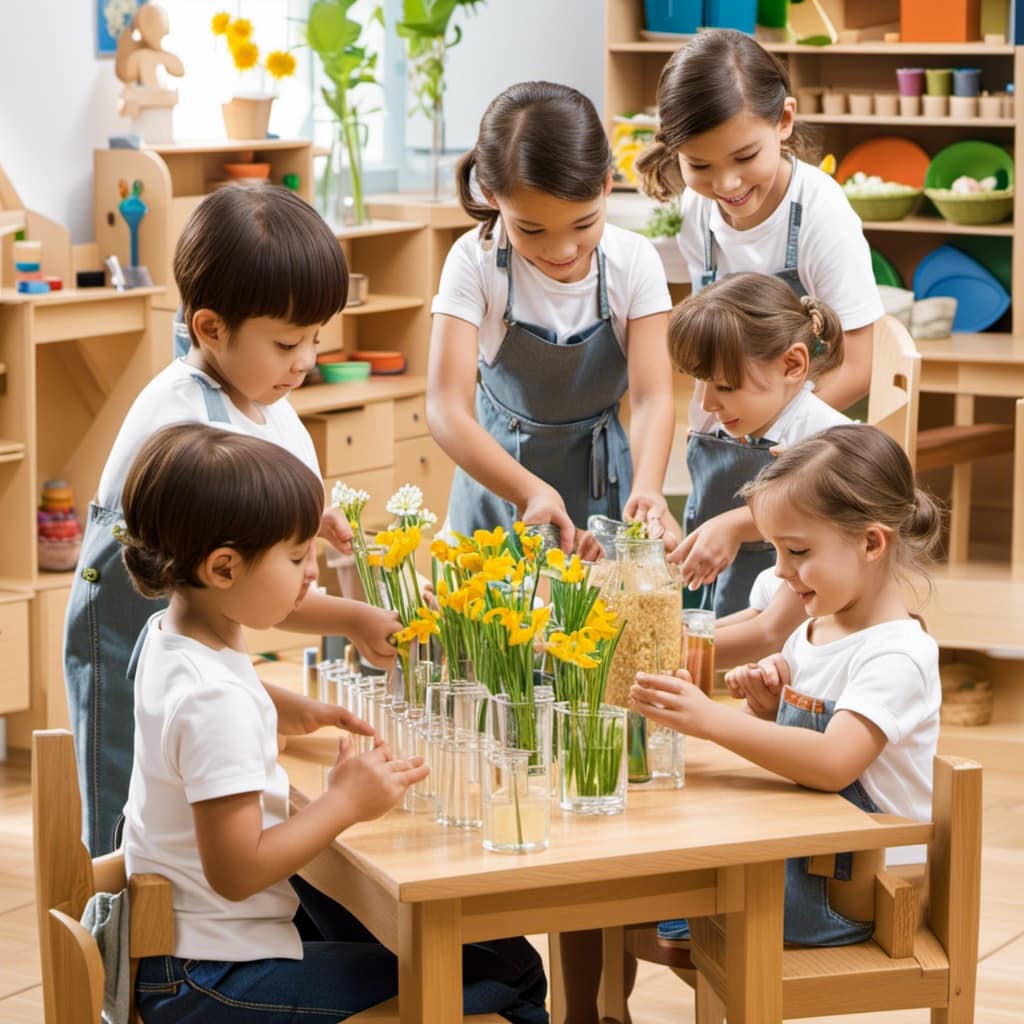
Look for Non-Toxic and Chemical-Free Options
When selecting eco-friendly toy materials, it’s crucial to look for options that are non-toxic and chemical-free. By opting for natural materials only, we ensure the safety of children who come into contact with these toys.
Additionally, choosing non-toxic and chemical-free options helps to reduce the environmental impact of toy production and disposal.
Natural Materials Only
We prioritize selecting natural materials for eco-friendly toys, ensuring they’re non-toxic and free from chemicals. By choosing natural materials, we can promote a safer and healthier play environment for children while also minimizing the impact on the environment.
Here are some reasons why we advocate for natural materials:
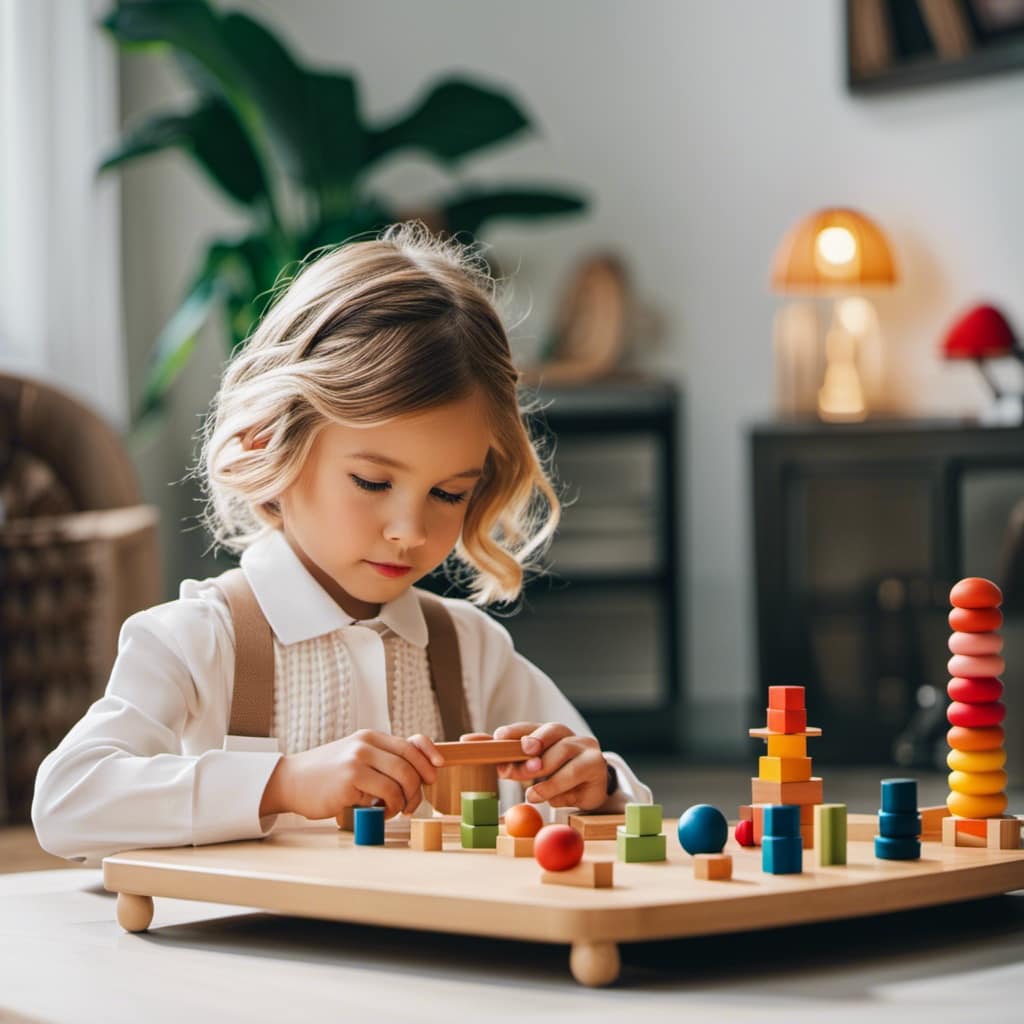
-
Reduced exposure to toxins: Natural materials, such as wood, organic cotton, and natural rubber, provide non-toxic alternatives to plastic and synthetic materials commonly found in toys.
-
Sustainable sourcing: Natural materials can be responsibly harvested, supporting eco-friendly manufacturing practices and reducing the depletion of natural resources.
-
Biodegradability: Unlike synthetic materials, natural materials are biodegradable, meaning they can decompose over time, reducing waste accumulation and environmental pollution.
Safety for Children
As advocates for eco-friendly toys, we consistently prioritize the safety of children by seeking out non-toxic and chemical-free options. When selecting toys for children, it is crucial to consider the potential harm that toxic materials can cause. By choosing toys made from toxic-free options, we can ensure that our children are not exposed to harmful chemicals that could negatively impact their health and well-being.
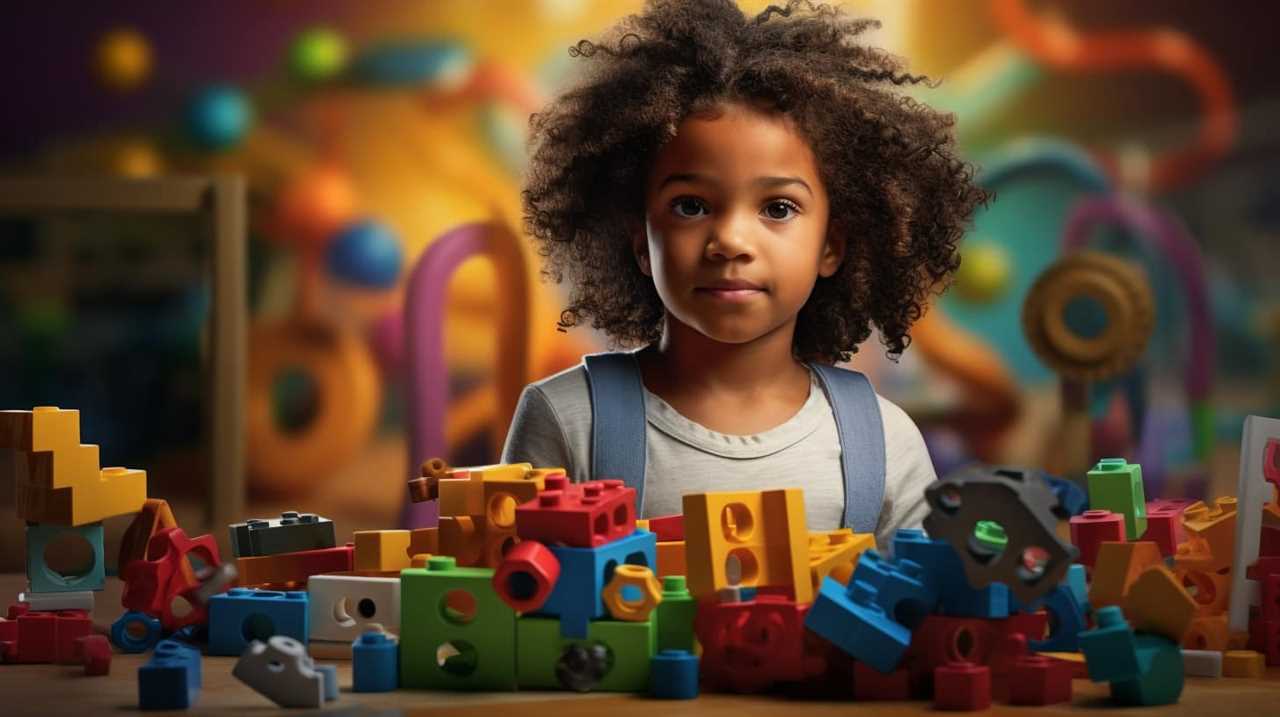
To assist you in making informed choices, we have provided a table below that highlights the importance of non-toxic and chemical-free toys in eco-friendly manufacturing:
| Benefits of Non-Toxic and Chemical-Free Toys |
|---|
| 1. Reduces the risk of exposure to harmful chemicals |
| 2. Promotes a safe and healthy play environment |
| 3. Supports sustainable and eco-friendly manufacturing practices |
Environmental Impact Reduction
To reduce the environmental impact, we actively seek out non-toxic and chemical-free options when selecting toy materials. Our commitment to Montessori toy safety and promoting a healthy environment for children guides our decision-making process. When it comes to choosing materials, we prioritize natural options that are sustainable and biodegradable.
Here are three reasons why opting for non-toxic and chemical-free materials is crucial:
-
Protecting children’s health: Non-toxic materials ensure that children aren’t exposed to harmful chemicals, reducing the risk of allergies, respiratory problems, and other health issues.
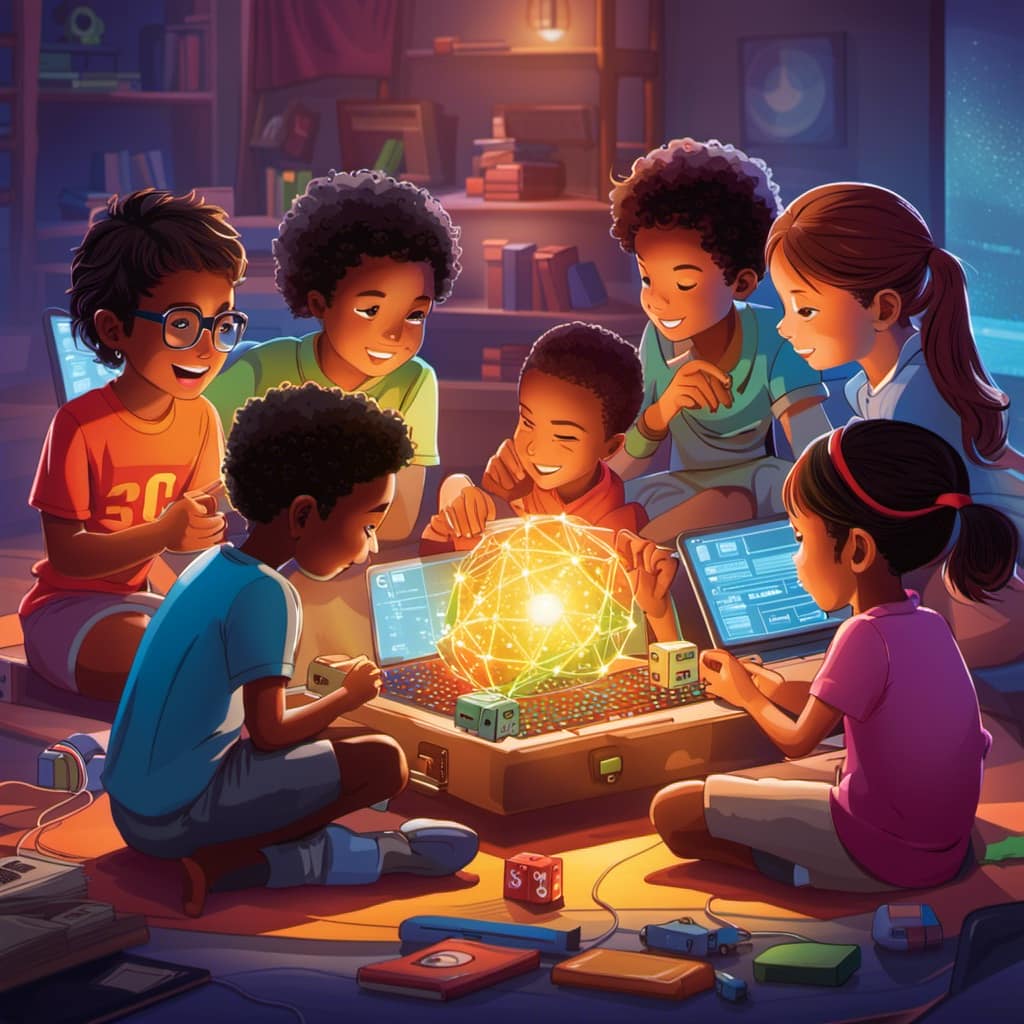
-
Preserving the environment: Chemical-free materials avoid polluting the air, water, and soil during production, use, and disposal, contributing to a cleaner and healthier planet.
-
Promoting sustainability: Natural materials like wood, organic cotton, and bamboo are renewable resources, minimizing resource depletion and supporting eco-friendly practices.
Choose Sustainable and Renewable Resources
The use of sustainable and renewable resources is essential when selecting eco-friendly toy materials. Sustainable manufacturing practices ensure that the resources used are responsibly sourced and don’t deplete the environment.
By choosing materials that are renewable, such as bamboo or organic cotton, we can reduce the impact on natural resources and promote a healthier planet.

Additionally, renewable energy sources, such as solar or wind power, should be utilized during the manufacturing process to further minimize the carbon footprint.
It’s important to consider the entire life cycle of a toy, from production to disposal, to ensure that it aligns with sustainable and renewable practices.
Prioritize Recycled and Upcycled Materials
When considering eco-friendly toy materials, it’s important to prioritize recycled and upcycled materials due to their positive environmental impact.
Recycling and upcycling not only reduce waste and conserve resources, but they also help to decrease the need for new raw materials and the energy required for their production.

Environmental Impact of Materials
We prioritize using recycled and upcycled materials for their lower environmental impact. By choosing these materials, we contribute to sustainable manufacturing practices and reduce our carbon footprint.
Here are three key reasons why we prioritize recycled and upcycled materials:
-
Resource Conservation: Using recycled and upcycled materials helps to conserve natural resources by reducing the need for virgin materials extraction.
-
Energy Savings: The production of recycled and upcycled materials requires less energy compared to the manufacturing of new materials, resulting in lower greenhouse gas emissions.
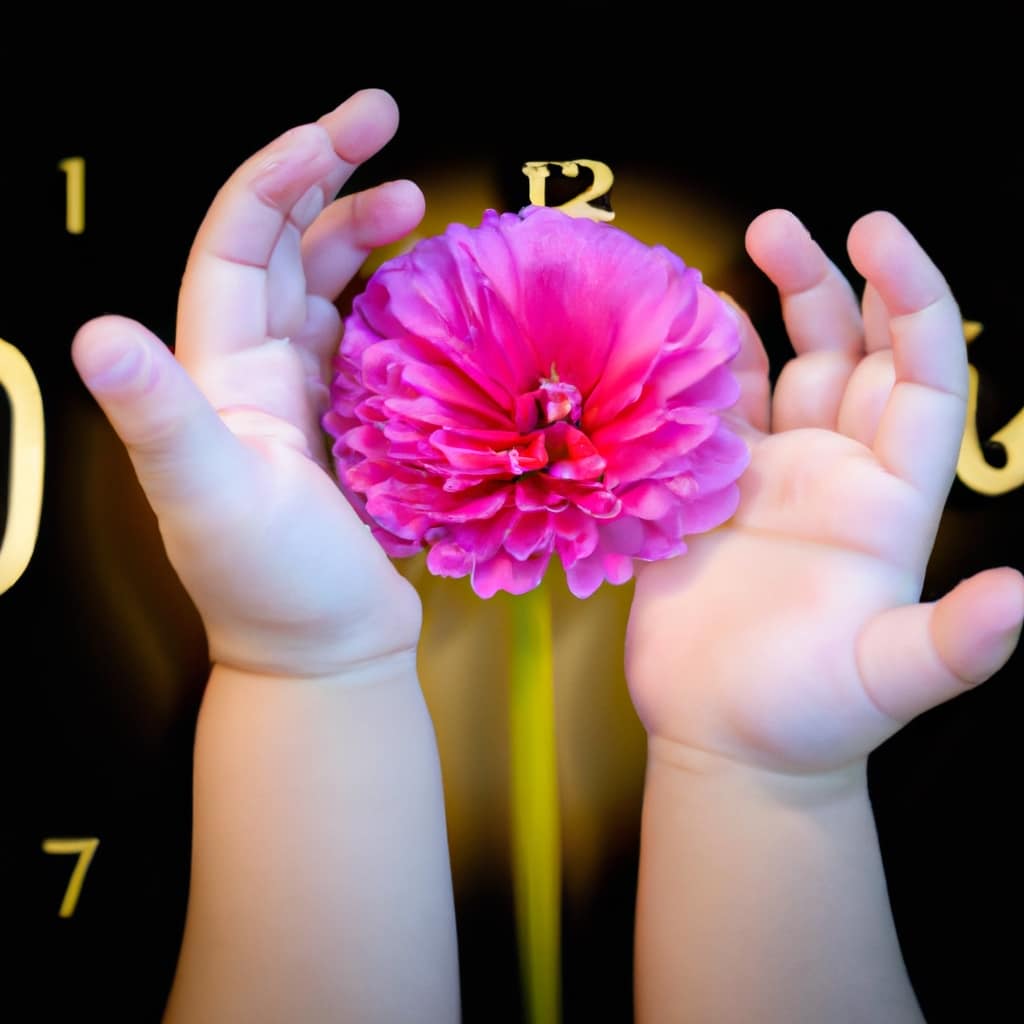
-
Waste Reduction: By utilizing materials that have already been used or repurposed, we help divert waste from landfills, contributing to a cleaner environment.
Benefits of Recycling/Upcycling
Continuing our commitment to sustainability, let’s explore the benefits of prioritizing recycled and upcycled materials for eco-friendly toy manufacturing. By using recycled and upcycled materials, we can significantly reduce waste and minimize the environmental impact of toy production.
Recycling and upcycling not only help divert materials from landfills but also conserve energy and resources that would otherwise be used in the production of new materials. This process reduces the need for raw materials extraction, which often involves destructive mining practices and contributes to deforestation. Additionally, it helps to decrease greenhouse gas emissions and air pollution associated with manufacturing processes.
To further highlight the benefits of recycling and upcycling, let’s take a look at the following table:
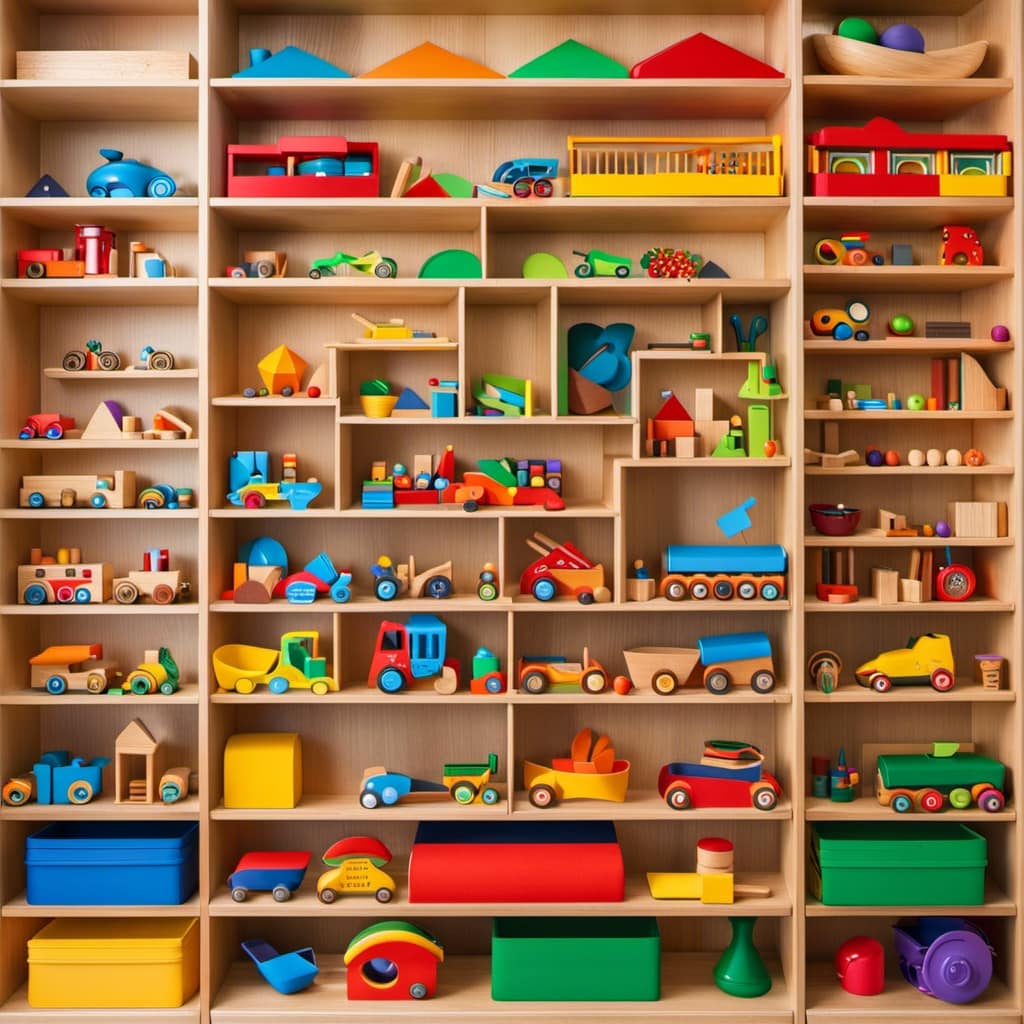
| Benefits of Recycling/Upcycling |
|---|
| Reduces waste |
| Conserves energy and resources |
| Minimizes environmental impact |
| Decreases greenhouse gas emissions |
Choosing Sustainable Alternatives
To continue our commitment to sustainability, let’s explore how we can choose sustainable alternatives by prioritizing the use of recycled and upcycled materials in toy manufacturing. By opting for sustainable manufacturing practices, we can significantly reduce the environmental impact of toy production.
Here are three key reasons why we should prioritize recycled and upcycled materials:
-
Conservation of resources: Using recycled materials helps conserve natural resources like timber, water, and energy, reducing the need for raw material extraction and production processes.
-
Reduction of waste: By upcycling materials, we can give a new life to items that would otherwise end up in landfills, minimizing waste generation and promoting a circular economy.

-
Eco-friendly packaging: Choosing toys with eco-friendly packaging made from recycled or biodegradable materials decreases the amount of plastic waste and contributes to a cleaner environment.
Opt for Water-based and Non-VOC Paints
When selecting eco-friendly toy materials, it’s important to opt for paints that are water-based and free from volatile organic compounds (VOCs). Water-based paints offer several advantages over traditional solvent-based paints. They’ve lower levels of toxic emissions, making them safer for both the environment and human health. Water-based paints also have a lower odor, reducing the risk of respiratory issues and allergic reactions.
On the other hand, VOC paints contain harmful chemicals that can negatively impact indoor air quality and contribute to various health problems, such as respiratory irritation and allergies. By choosing water-based paints, we can minimize the release of harmful chemicals into the environment and create a safer and healthier play environment for children.
Now, let’s move on to the next step: checking for safety certifications and labels.

Check for Safety Certifications and Labels
Our first step is to examine the safety certifications and labels of the eco-friendly toy materials. Safety certifications and labels play a crucial role in ensuring the well-being of children during playtime. Here are some key reasons why researching safety certifications and labels is important:
-
Protection from hazardous materials: Safety certifications and labels guarantee that the toy materials meet specific safety standards and don’t contain harmful substances such as lead or phthalates.
-
Quality assurance: Certifications and labels indicate that the toys have undergone rigorous testing and comply with safety regulations, assuring parents of their durability and longevity.
-
Peace of mind for parents: By choosing toys with proper safety certifications and labels, parents can rest assured that their child’s health and safety are being prioritized.
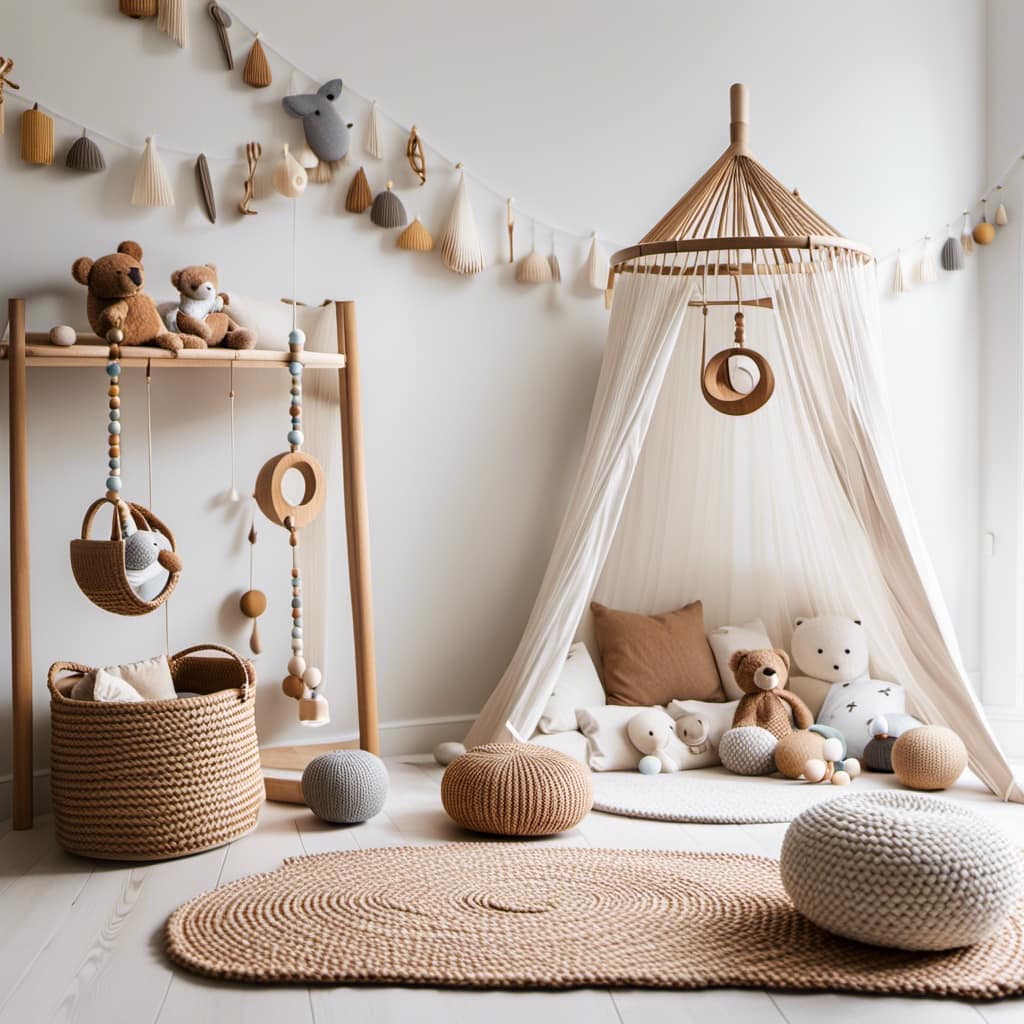
Consider Durability and Longevity
Considering the durability and longevity of eco-friendly toy materials is crucial in making an informed purchasing decision. When evaluating the durability of a toy, it’s important to take into account its construction and the materials used. Look for toys made from sturdy materials such as wood, metal, or recycled plastic, as they’re more likely to withstand rough play and last longer.
Additionally, consider the longevity of the toy in terms of its ability to engage and entertain a child for an extended period of time. Toys that offer multiple play options or can be adapted as a child grows are more likely to provide long-term value.
While price is a factor to consider, it shouldn’t be the sole determining factor. Instead, weigh the cost against the durability and longevity of the toy.
Lastly, when evaluating eco-friendly certifications, look for reputable labels such as FSC-certified wood or the Green Seal, which indicate that the toy meets certain environmental standards.
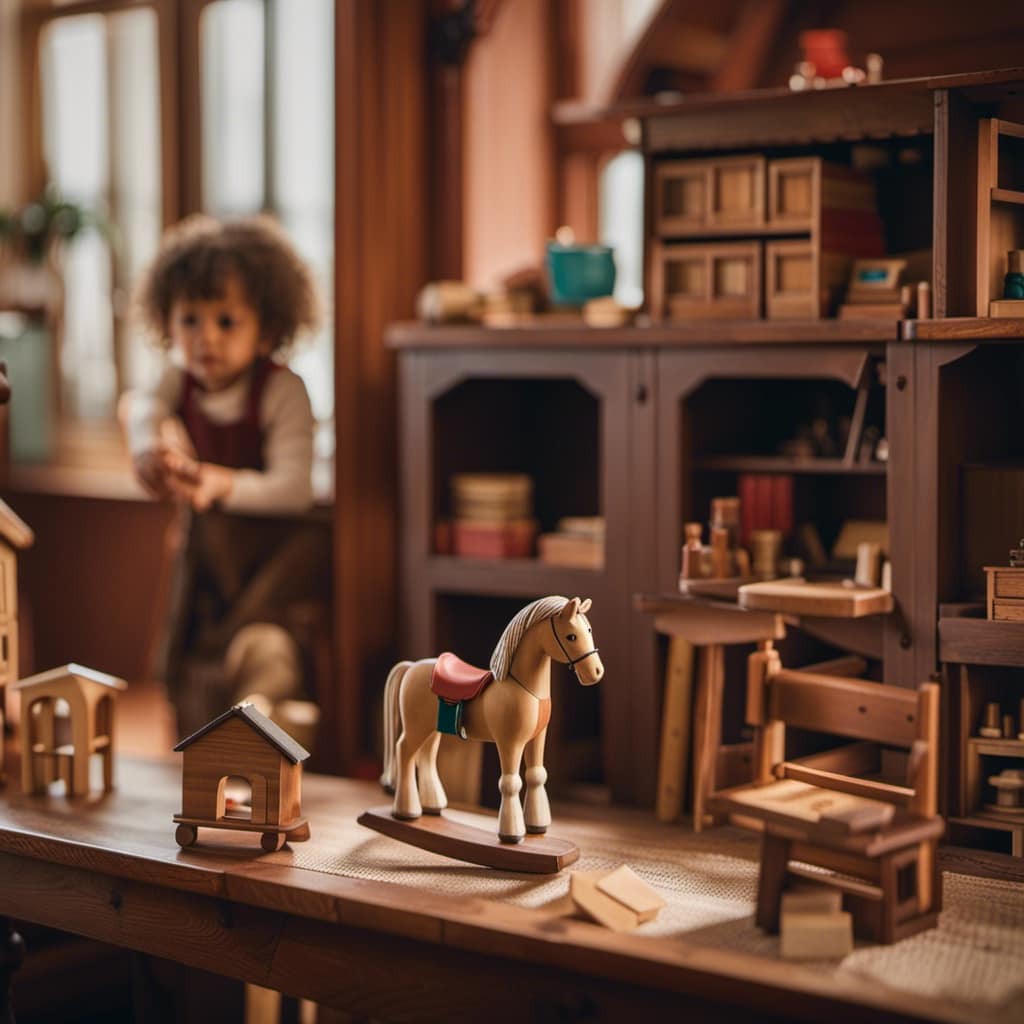
Support Ethical and Fair Trade Practices
To ensure eco-friendly toy materials, we prioritize supporting ethical and fair trade practices. By choosing toys made from ethically sourced materials, we can ensure that workers involved in the production process are treated fairly and working under safe conditions. Fair trade certification provides further assurance that the toys are made in a socially responsible manner, with fair wages and respect for human rights.
Incorporating ethical sourcing and fair trade practices into our toy selection process allows us to contribute to a sustainable and just supply chain. This not only benefits the workers involved but also aligns with our desire to serve others and make a positive impact on the world.
Frequently Asked Questions
Are There Any Specific Safety Certifications or Labels That I Should Look for When Selecting Eco-Friendly Toy Materials?
When selecting eco-friendly toy materials, we should look for safety certifications or labels. These can provide assurance that the materials have undergone testing and meet certain standards for safety and sustainability.
Can You Provide Some Examples of Sustainable and Renewable Resources That Are Commonly Used in Eco-Friendly Toys?
Examples of sustainable and renewable resources commonly used in eco-friendly toys include bamboo, organic cotton, recycled plastic, and natural rubber. These materials offer numerous benefits such as reducing waste, promoting biodiversity, and minimizing environmental impact.

What Are Some Alternative Options to Plastic and Synthetic Materials That I Can Consider When Selecting Eco-Friendly Toys?
When selecting eco-friendly toys, it is important to consider natural alternatives and biodegradable options as alternatives to plastic and synthetic materials. These options help reduce environmental impact and promote sustainability.
How Can I Ensure That the Paints Used on Eco-Friendly Toys Are Water-Based and Free From Volatile Organic Compounds (Vocs)?
To ensure water-based paint alternatives and VOC-free materials in eco-friendly toys, we can carefully read product labels, choose toys made from natural materials, and consult with manufacturers or retailers who prioritize environmental safety.
What Are Some Factors to Consider in Terms of Durability and Longevity When Selecting Eco-Friendly Toy Materials?
Factors to consider when selecting eco-friendly toy materials include durability and longevity. Alternative options to plastic and synthetic materials include sustainable and renewable resources such as bamboo, wood, organic cotton, and natural rubber.
Conclusion
In conclusion, selecting eco-friendly toy materials is crucial for the well-being of our children and the environment.
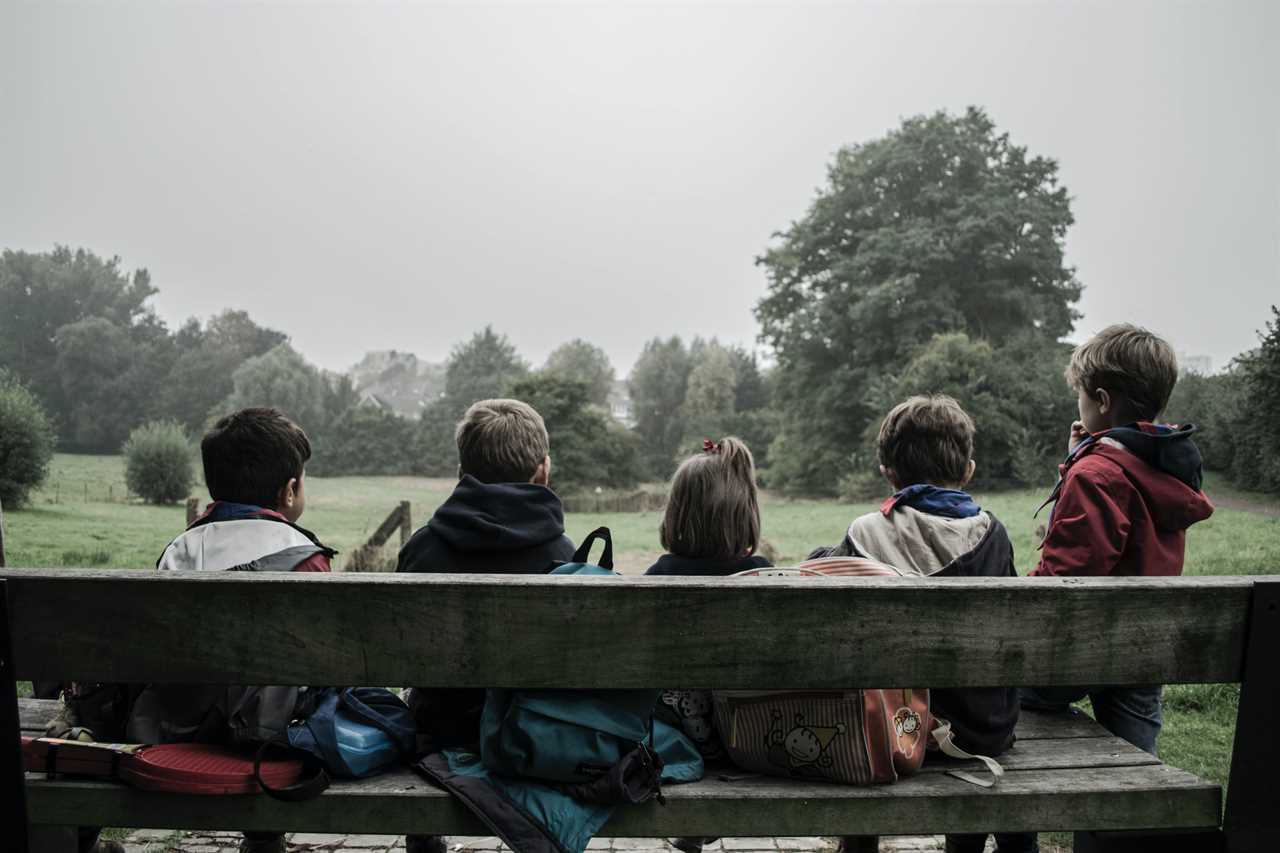
One interesting statistic to highlight is that on average, a child in the United States owns more than 70 toys, contributing to a significant amount of waste.
By choosing toys made from natural and organic materials, avoiding plastics and synthetic materials, and opting for sustainable resources, we can reduce our ecological footprint and create a healthier and safer play environment for our children.
-

 Child Development6 days ago
Child Development6 days agoEgocentrism: Understanding a Child’s Perspective
-

 Child Development2 months ago
Child Development2 months agoThe Benefits of Dramatic Play in Child Development
-
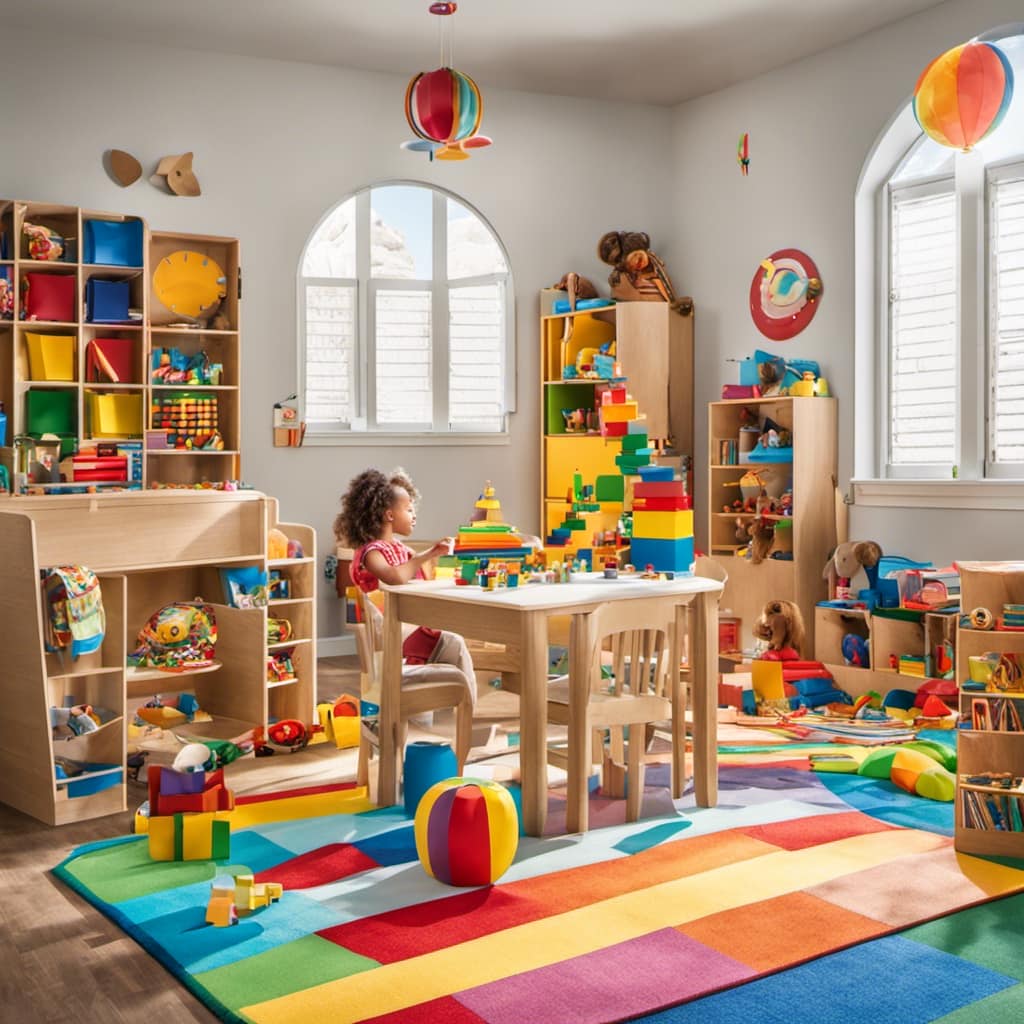
 Child Development1 week ago
Child Development1 week agoThe Importance of Socialization in Child Development
-
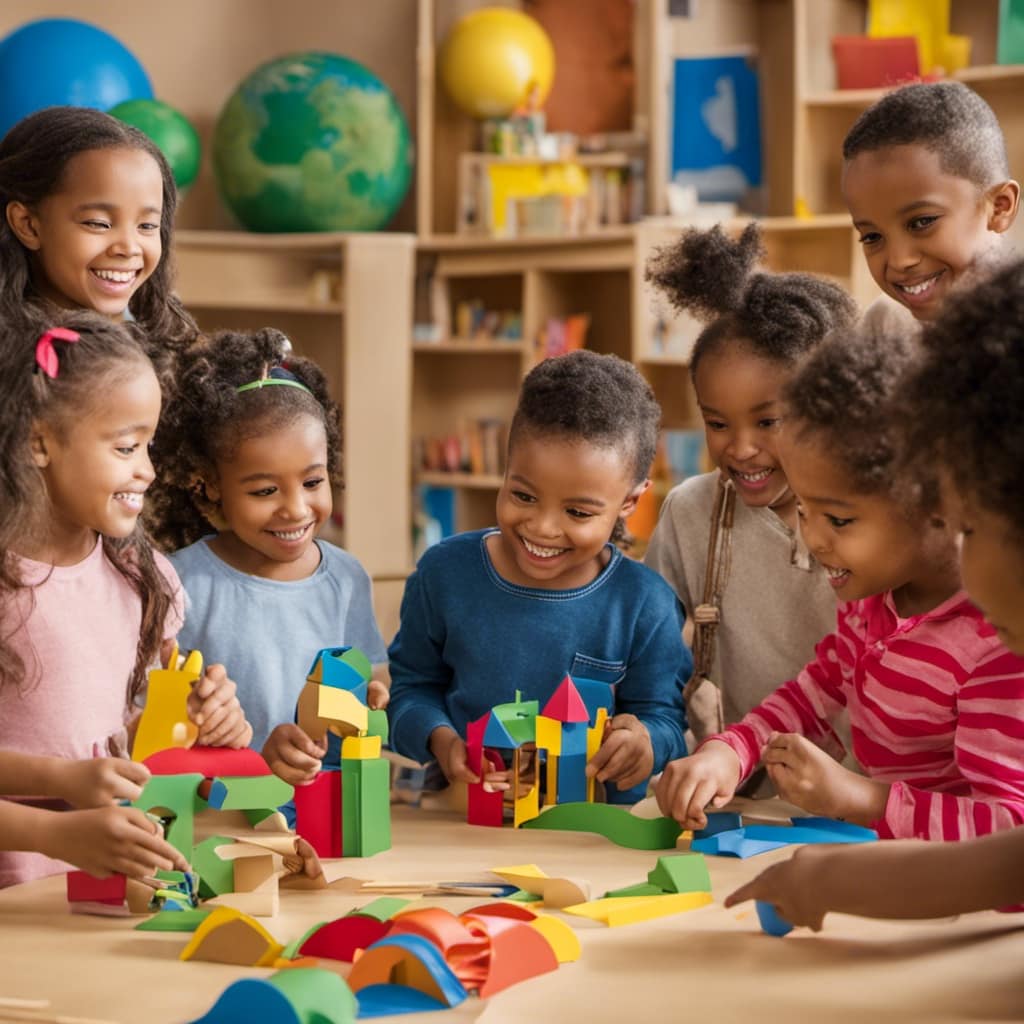
 Child Development2 months ago
Child Development2 months agoSensory Play: Boosting Brain Development and Learning
-

 Child Development1 week ago
Child Development1 week agoThe Role of PIES in Toddler Development: Enhancing Growth and Skills
-

 Child Development2 months ago
Child Development2 months agoSymbolic Thinking: A Key Milestone in Cognitive Development
-
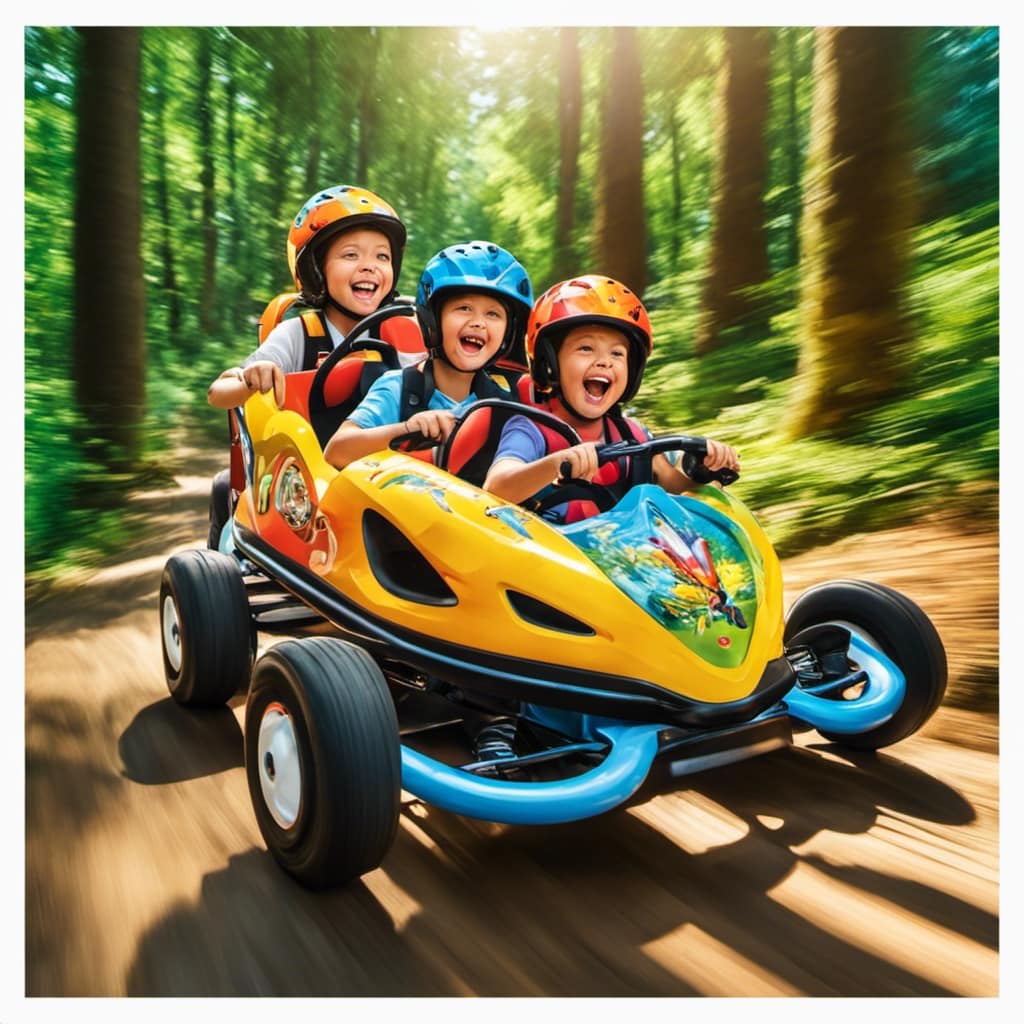
 Child Development1 week ago
Child Development1 week agoThe PIES Model: A Holistic Approach to Child Development
-
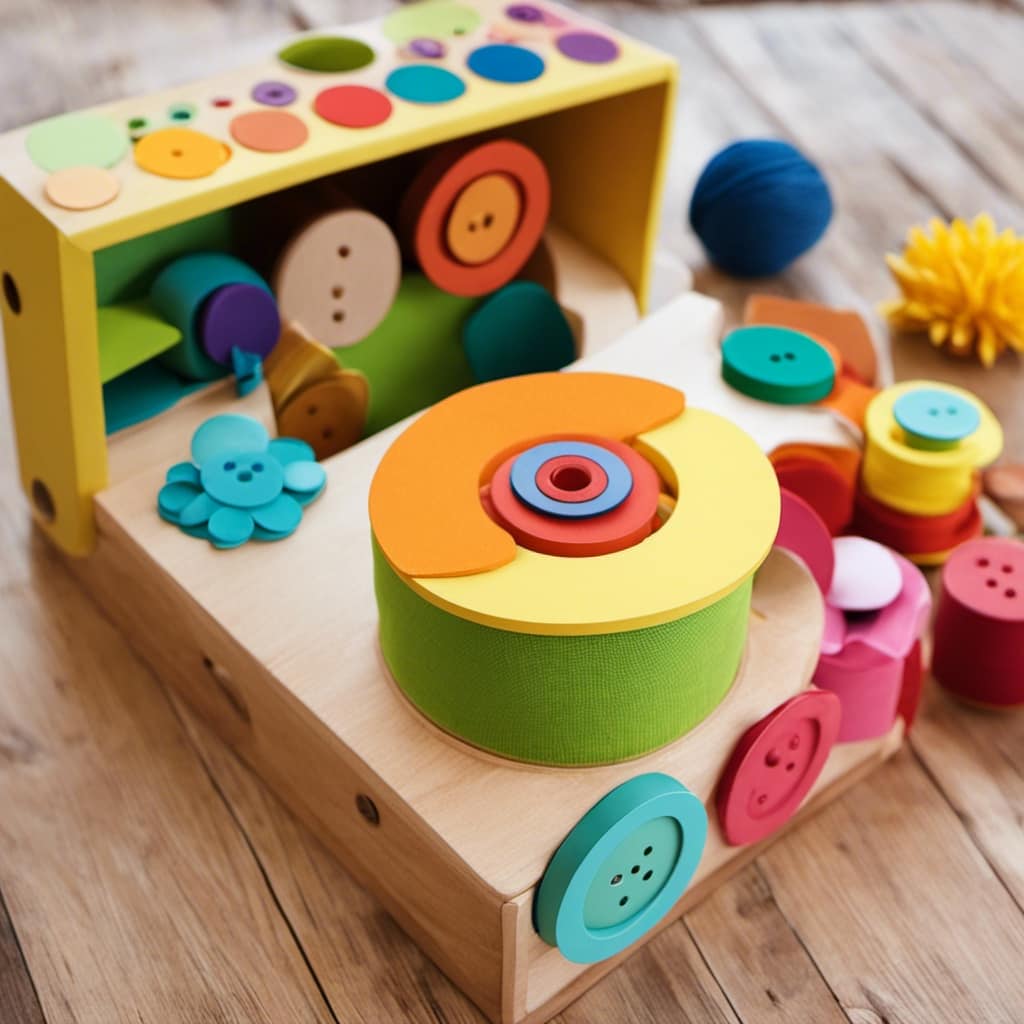
 Child Development1 week ago
Child Development1 week agoThe Power of Cooperative Play in Child Development
